Advertised for its streamlined design, the Torpedo featured a floor plan with plenty of “walking space,” a stove, sink, ice box, and storage. It would pave the way for the riveted aluminum designs that Wally would lean into in the coming years.
Models

Torpedo Car Cruiser

Airstream Clipper
Constructed using Duraluminum and rivets just like the aircraft of the day, the Clipper was advertised as an "Airplane without wings." Elements of the Clipper design can be seen everywhere in today's modern Airstream designs – from its riveted aluminum shell and rounded corners to the interior features that let you bring along the comforts of home.
Models
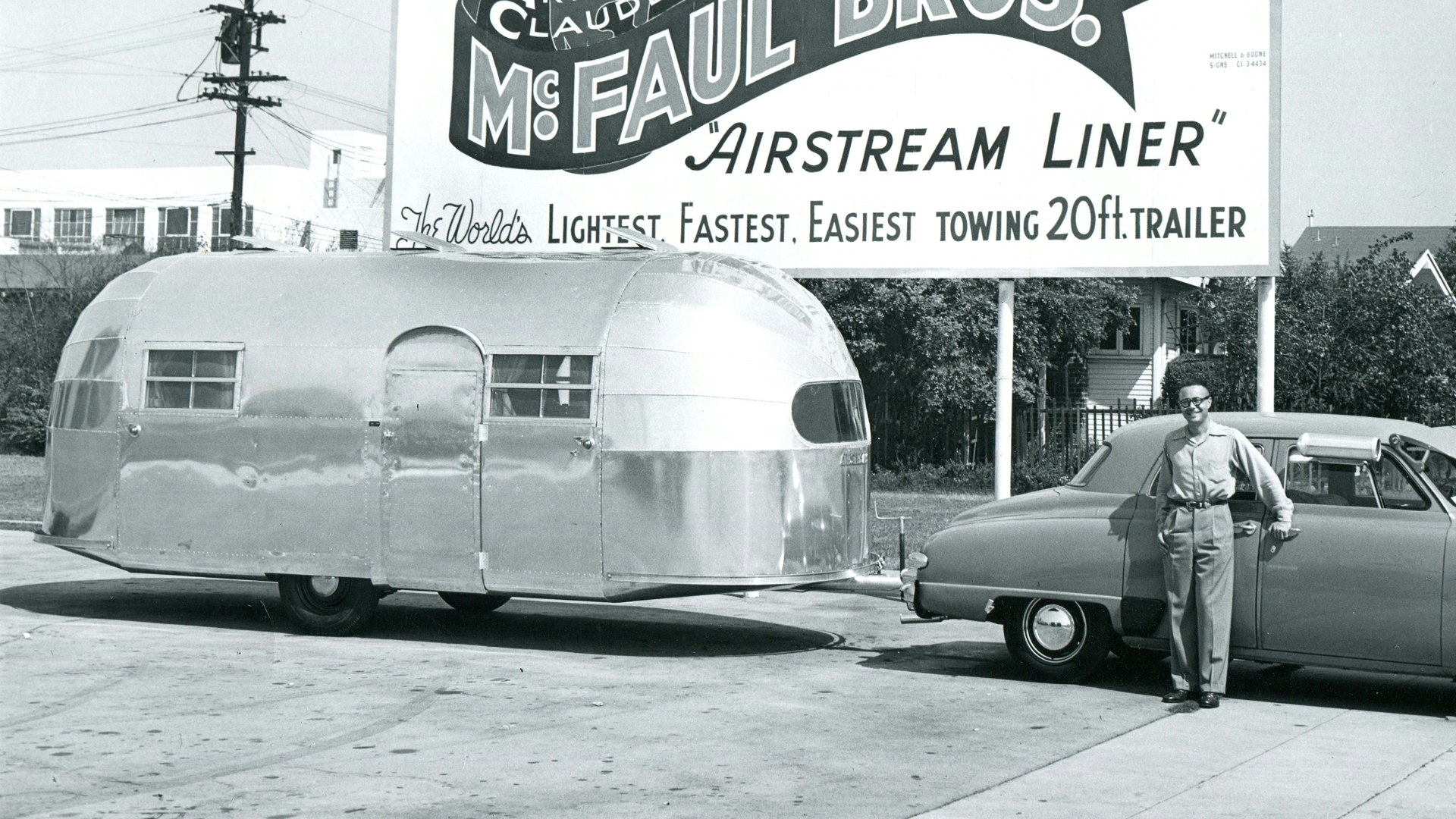
Airstream Liner
The Liner followed the Clipper and featured many design improvements. It was an extremely lightweight model with advanced optional features including electric refrigeration, lavatory, and a shower.
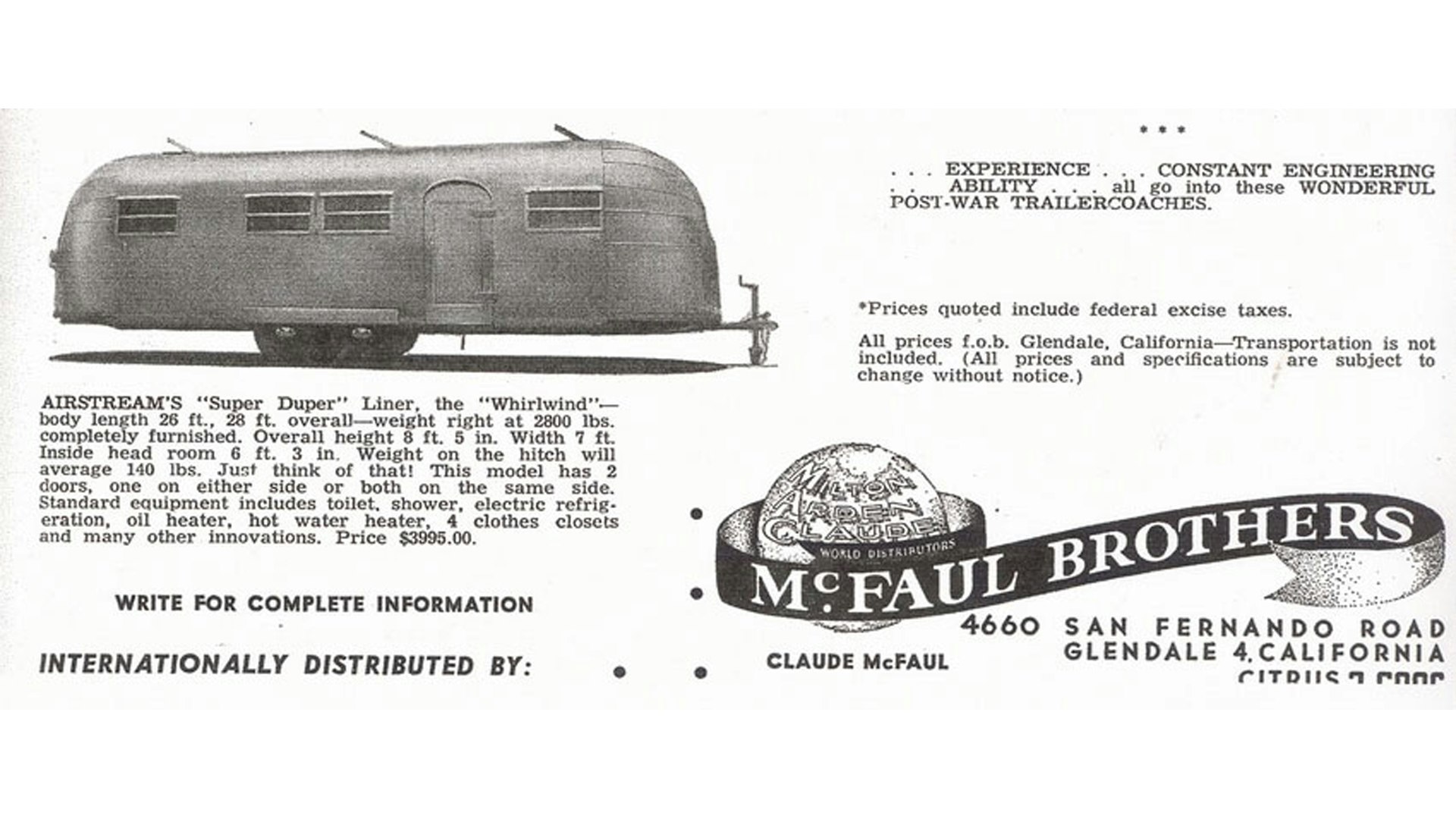
Whirlwind
One of the few Airstream travel trailer designs to feature two doors, the Whirlwind's unique design allowed for more air flow and an additional emergency exit.
Shell & Chassis Evolution
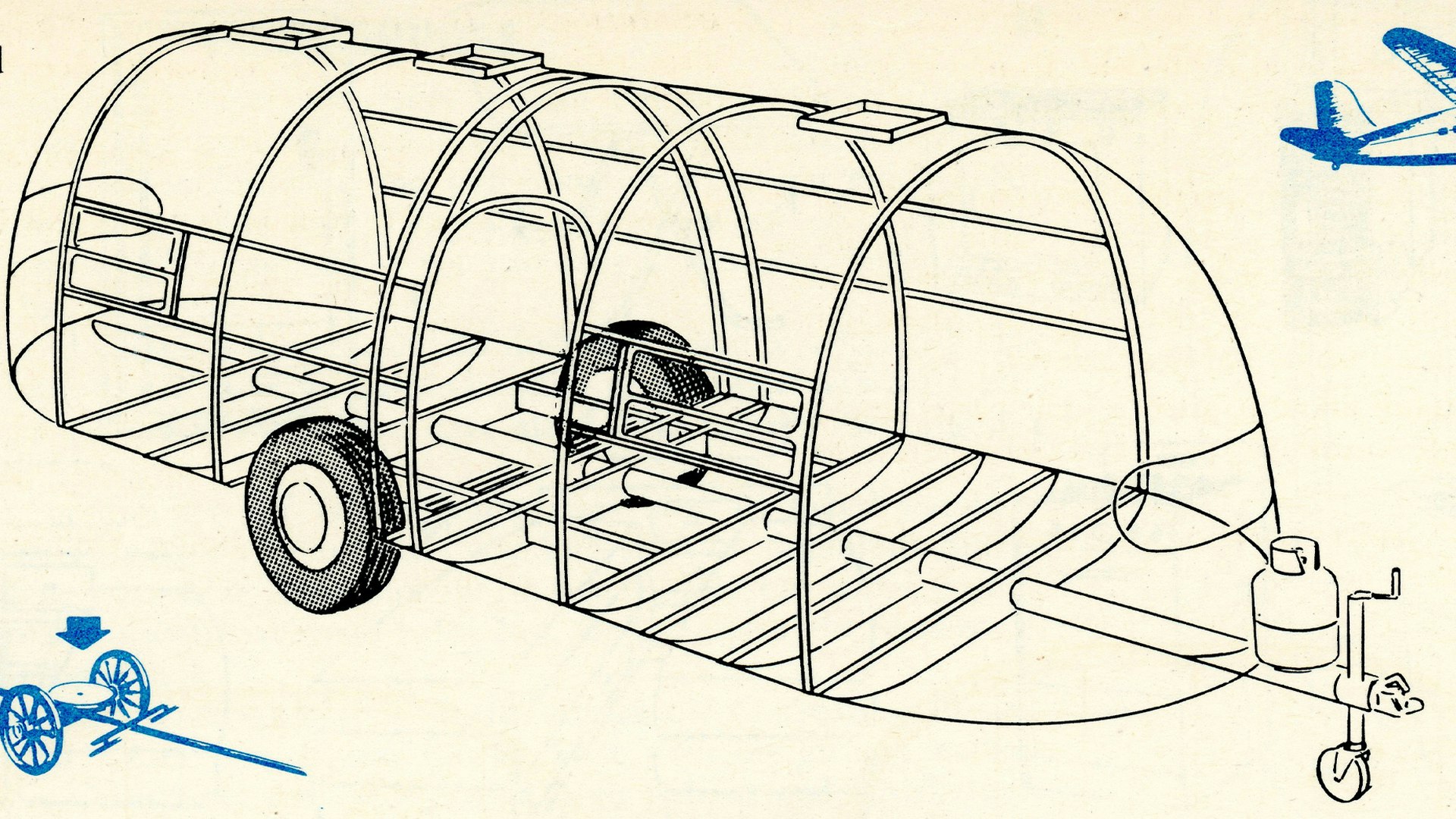
Pipe Frame Chassis
Wally was always experimenting with new designs, and in the 1940s he invented a unique chassis featuring a pipe frame support that ran from the back of the travel trailer to the hitch. The new chassis was the latest embodiment of Wally's commitment to lightweight design.
Innovations
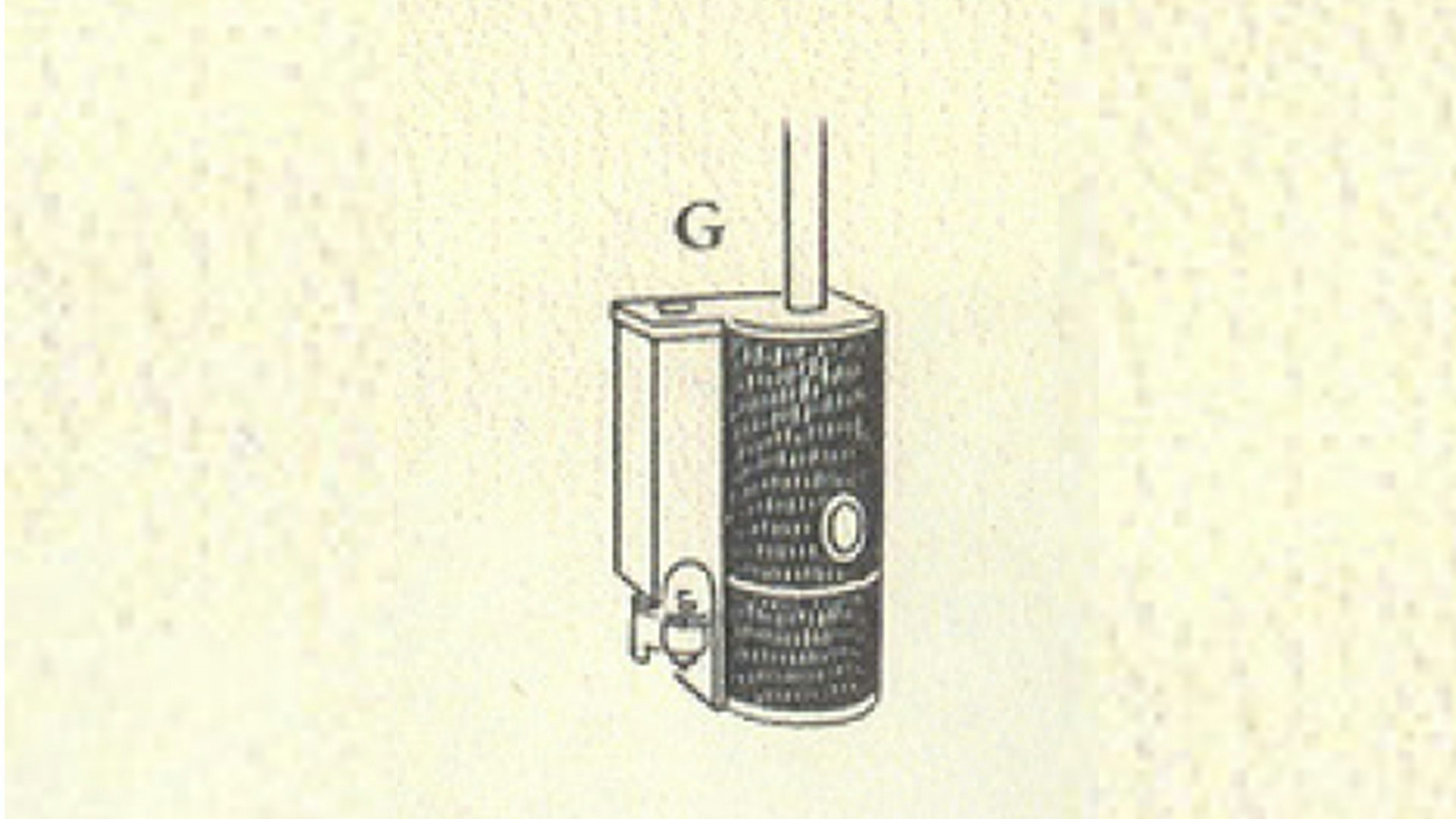
Byam Burner
While traveling through Europe, Wally discovered a heating system that took up relatively little space and emitted plenty of radiant heat. Wally took it home, improved upon the design, and renamed it the Byam Burner.
Innovations
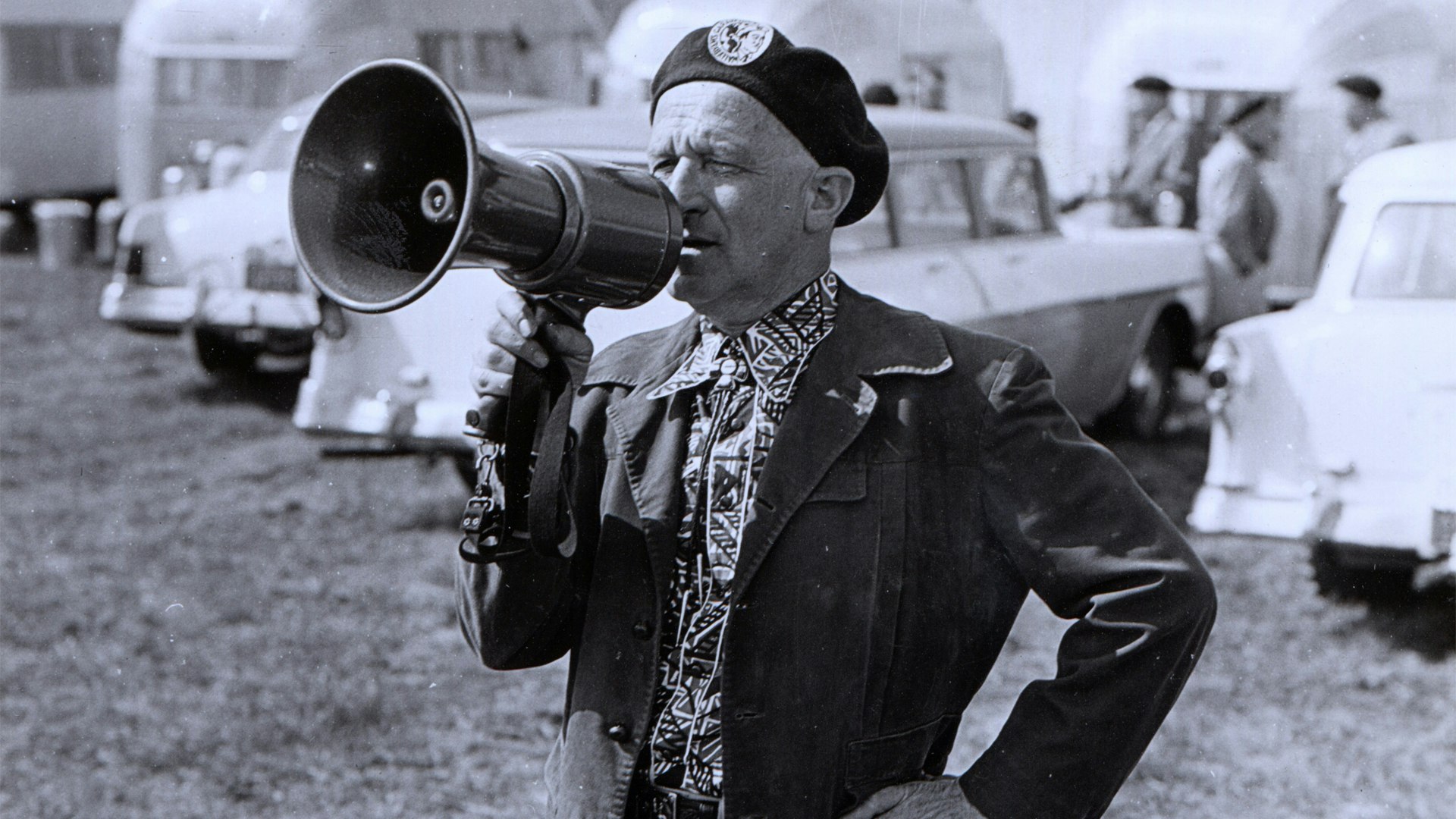
Dometic
Wally scoured the world looking for products that would improve the Airstream experience. On the 1956 European Caravan, he met with a Swedish company named Electrolux, manufacturer of the Dometic refrigerator. Wally agreed to begin importing the refrigerators for use in Airstreams and today, nearly 70 years later, Dometic is now a staple in the RV industry.

Water Heater
When the right product didn't exist, Wally had a way of bringing it into existence. In 1954, he persuaded Max Bowen of Bowen Water Heater Co. to develop the first hot water system in a travel trailer.
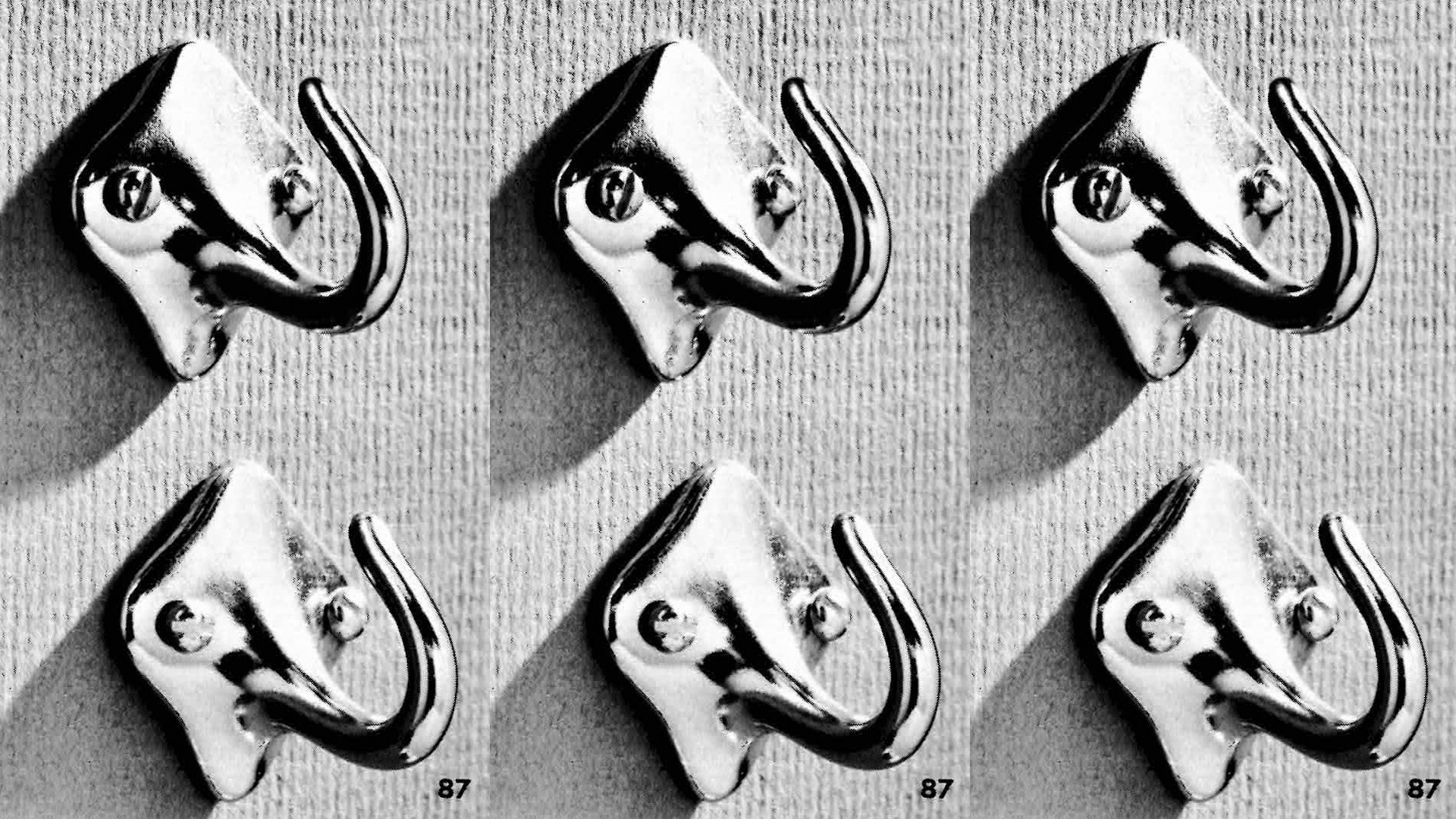
Byam Hook
Also known as a razor strop hook, these uniquely designed hooks are commonly known in the Airstream world as “Byam Hooks.” They achieved that nickname due to Wally's propensity for utilizing them through his Airstream – inside and out – to hang everything from clothes to his trademark bullhorn.

Wally's Gold Airstream
In 1957, Wally built an Airstream travel trailer sheathed in gold anodized aluminum that wound up being a test trailer for the International's self-containment package. Wally dreamed of Easter Egg colored trailers with anodized panels but this would prove to be too difficult.
Models

International
In 1958, Airstream introduced the first self-contained travel trailers in the world, which allowed you to travel free from water and power hookups. With features including a water heater, holding tanks, and batteries, the International travel trailer line let owners enjoy the comforts of home even when far afield.
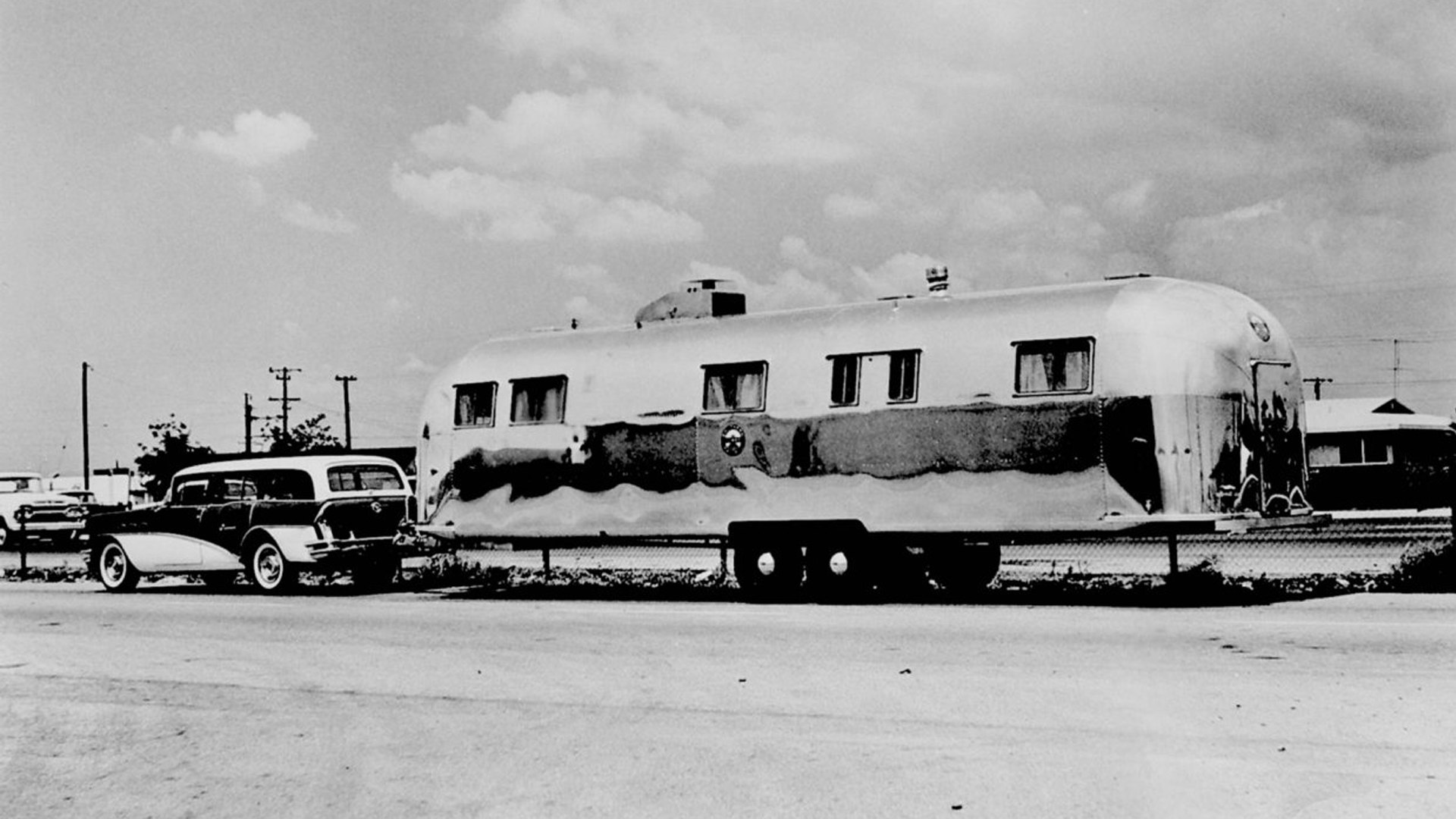
Railroad Airstreams
In 1958, Airstream created a commercial division to sell trailers to industrial customers. Most went to the Southern Pacific and Western Pacific railroads to house work crews. Between January 1960 and March 1964, almost 270 additional trailers were built, with most varying between 32’ and 40’ long. The 1958 and 1960 units were designed and badged as Airstreams, but in mid-1961 the units started being identified as Mobile Industrial trailers.
Shell & Chassis Evolution
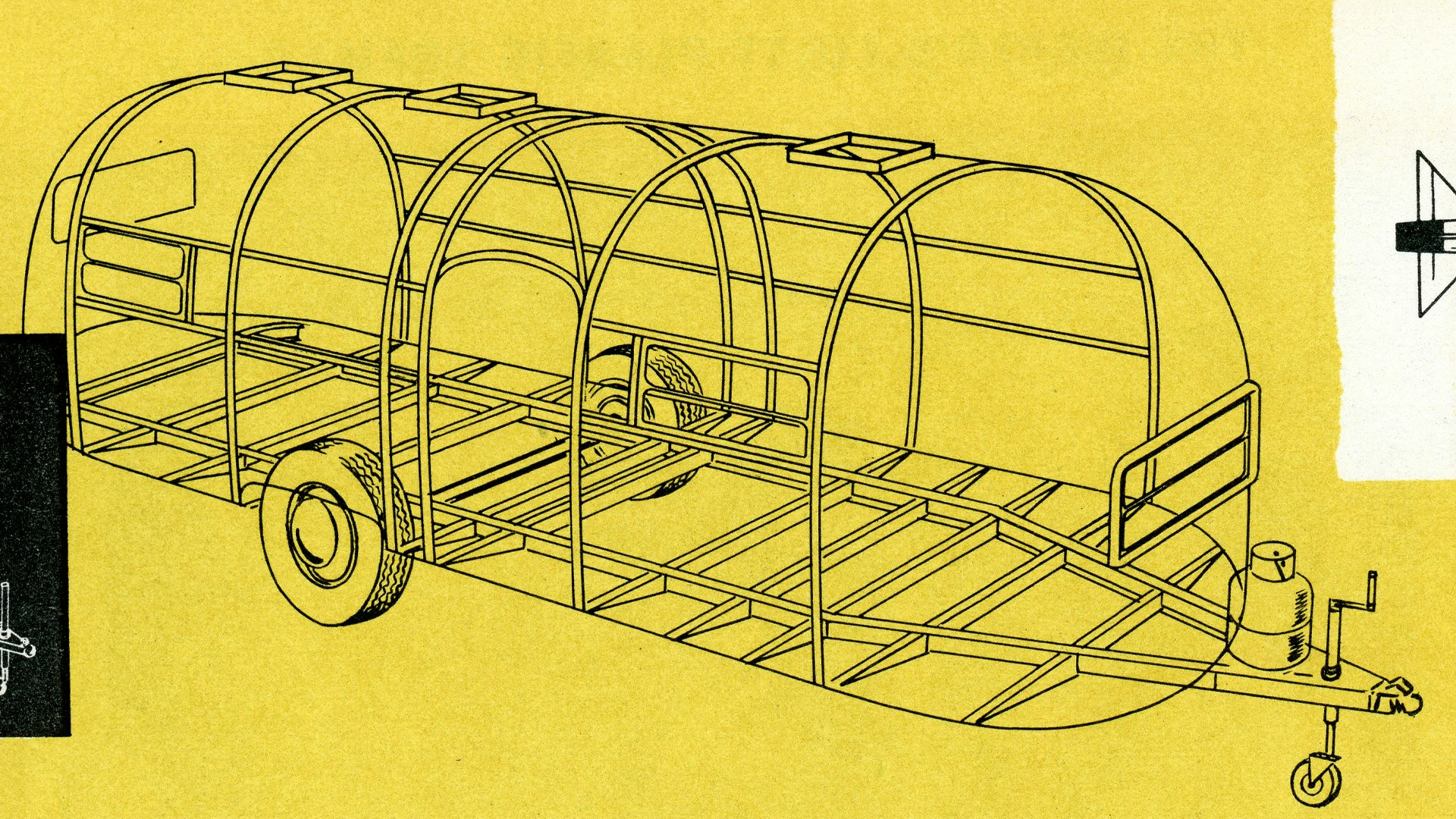
Ladder Frame Chassis
In 1950, Wally developed a ladder frame chassis with an A-shaped hitch to replace the pipe frame chassis. The body became more square with flatter walls and new flat windows. The flatter ends required thirteen panels on the end caps to form a tight curve. The flat front ends had double horizontal windows that opened, and the flat ends added more interior room.
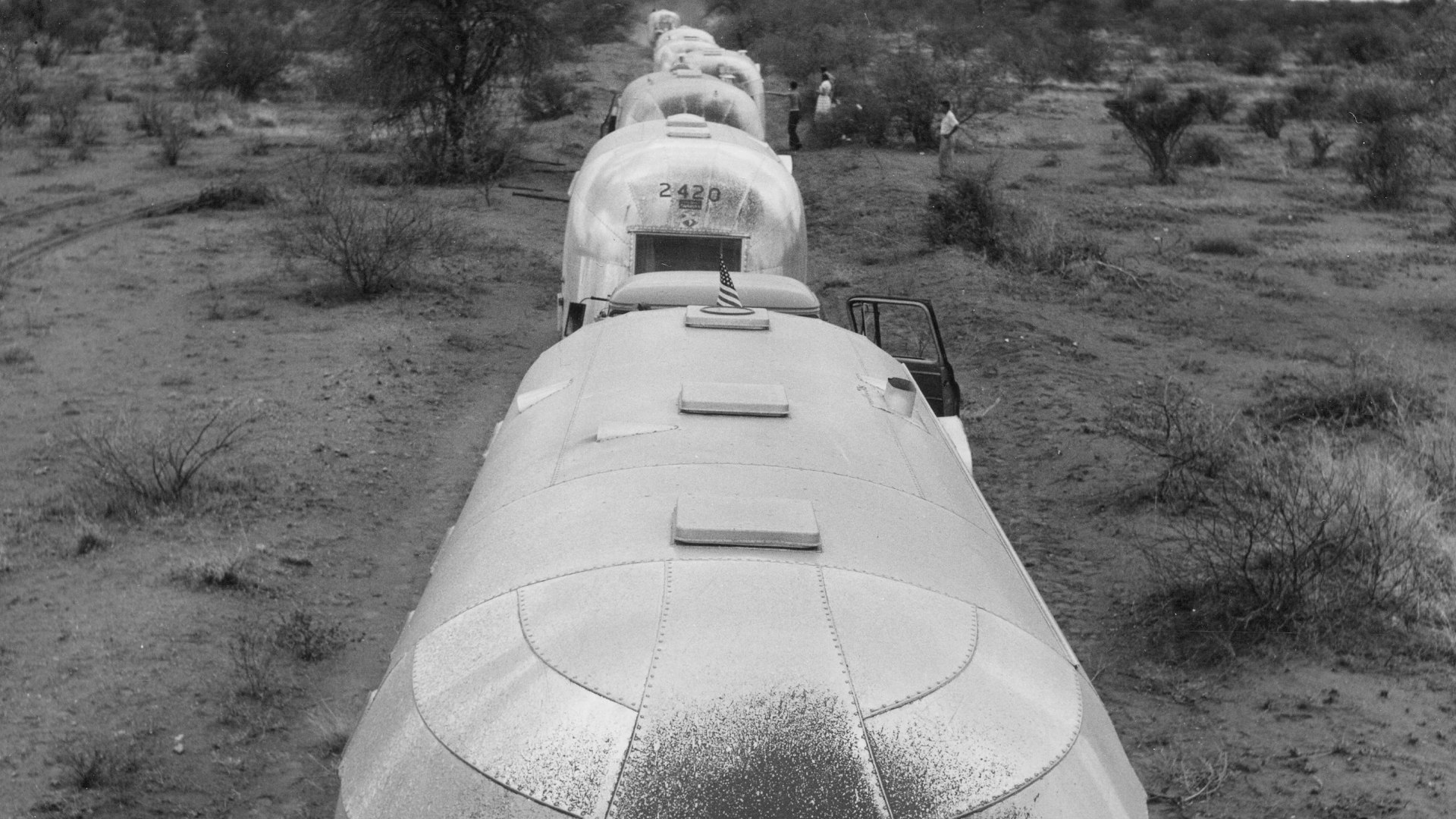
Shell Evolution
In 1954, Airstream changed the exterior design, resulting in a slightly-sloping tail (rather than a vertical end cap). Additionally, the California plant introduced a unique rear end design known as the "whale tail" or "Dutchman's cap." Instead of 13 panels, the whale tail had 9 panels: 4 wrapped horizontally on each side and a center piece attached to the roof panel flaring out to the top of the window.
In 1957, technological advances in metalworking led to a reduction in the number of panels used in the end caps – from thirteen to seven.
Models

Bambi
In response to a growing number of people buying smaller family vehicles, the Bambi single-axle Airstream travel trailer launched in 1961. It was small, light, self-contained, and easy to tow.
Innovations
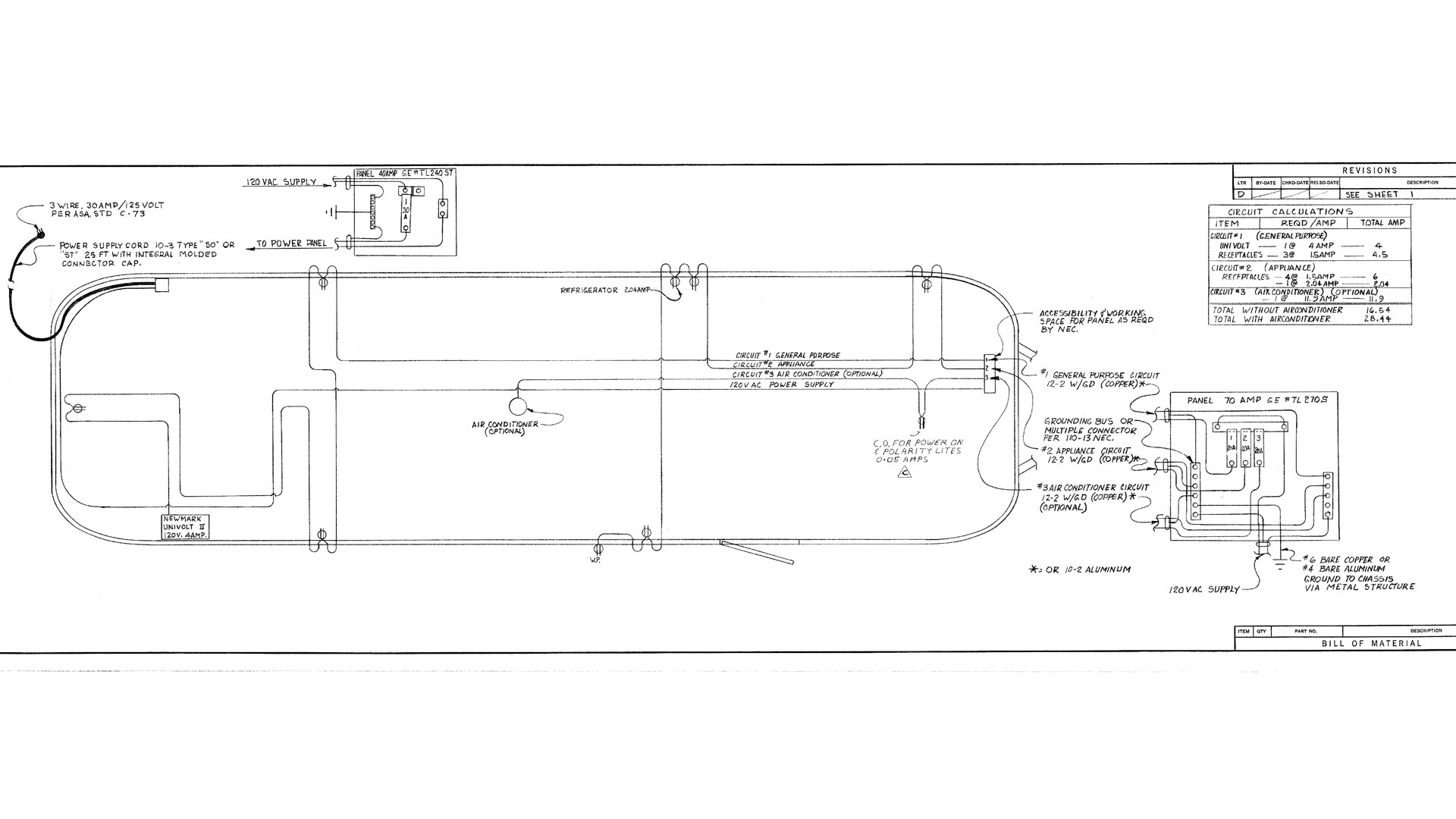
Univolt Electrical System
After Wally's passing in 1962, Airstream leaders carried on the torch with innovations such as the Univolt electrical system which converted 110-volt external power to 12-volt DC power (for light fixtures).
Shell & Chassis Evolution
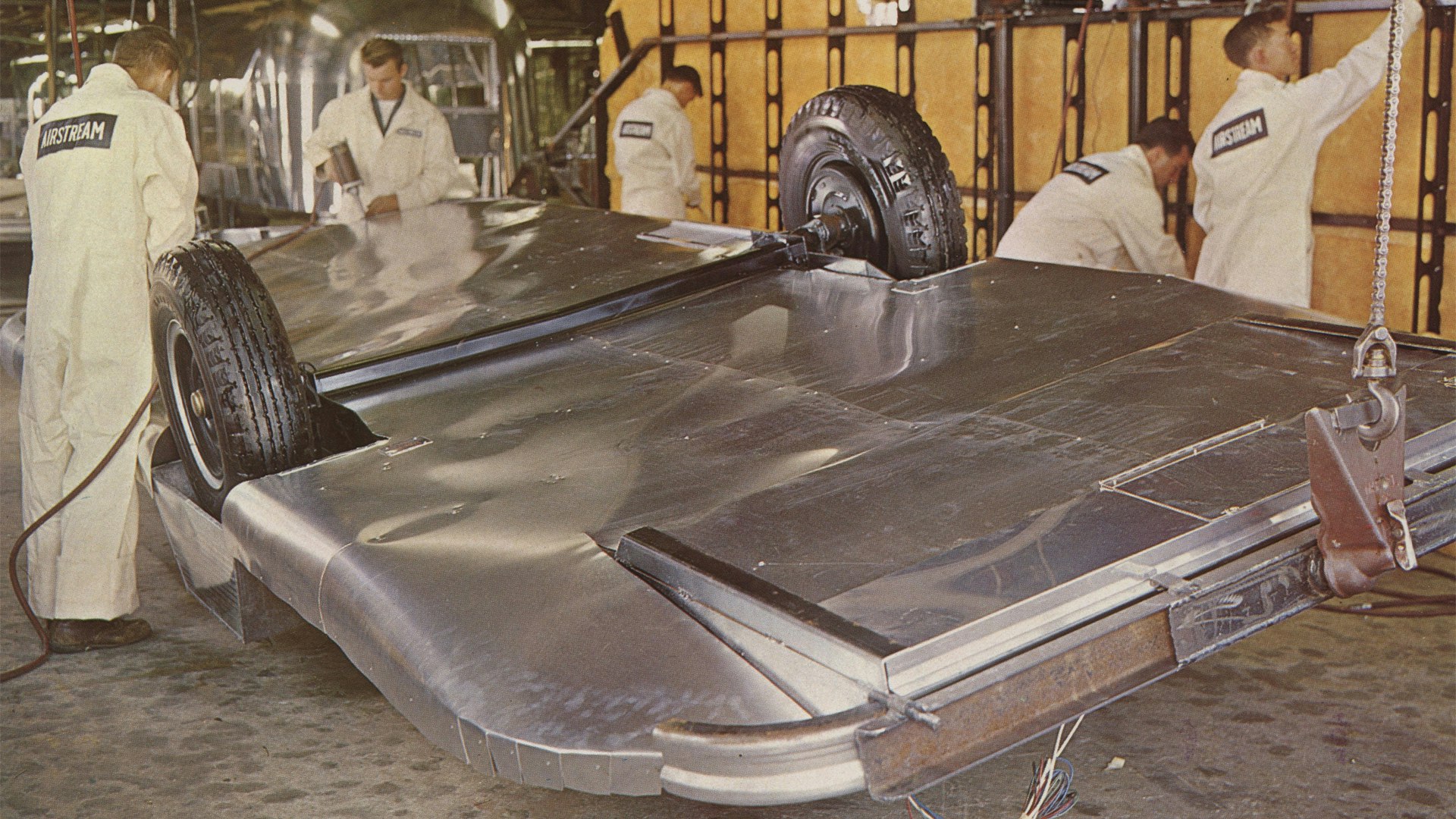
Aerostress Chassis
The 1960s also featured the introduction of the patented Aerostress underbelly which gave Airstreams an “astonishing strength-to-weight ratio.”
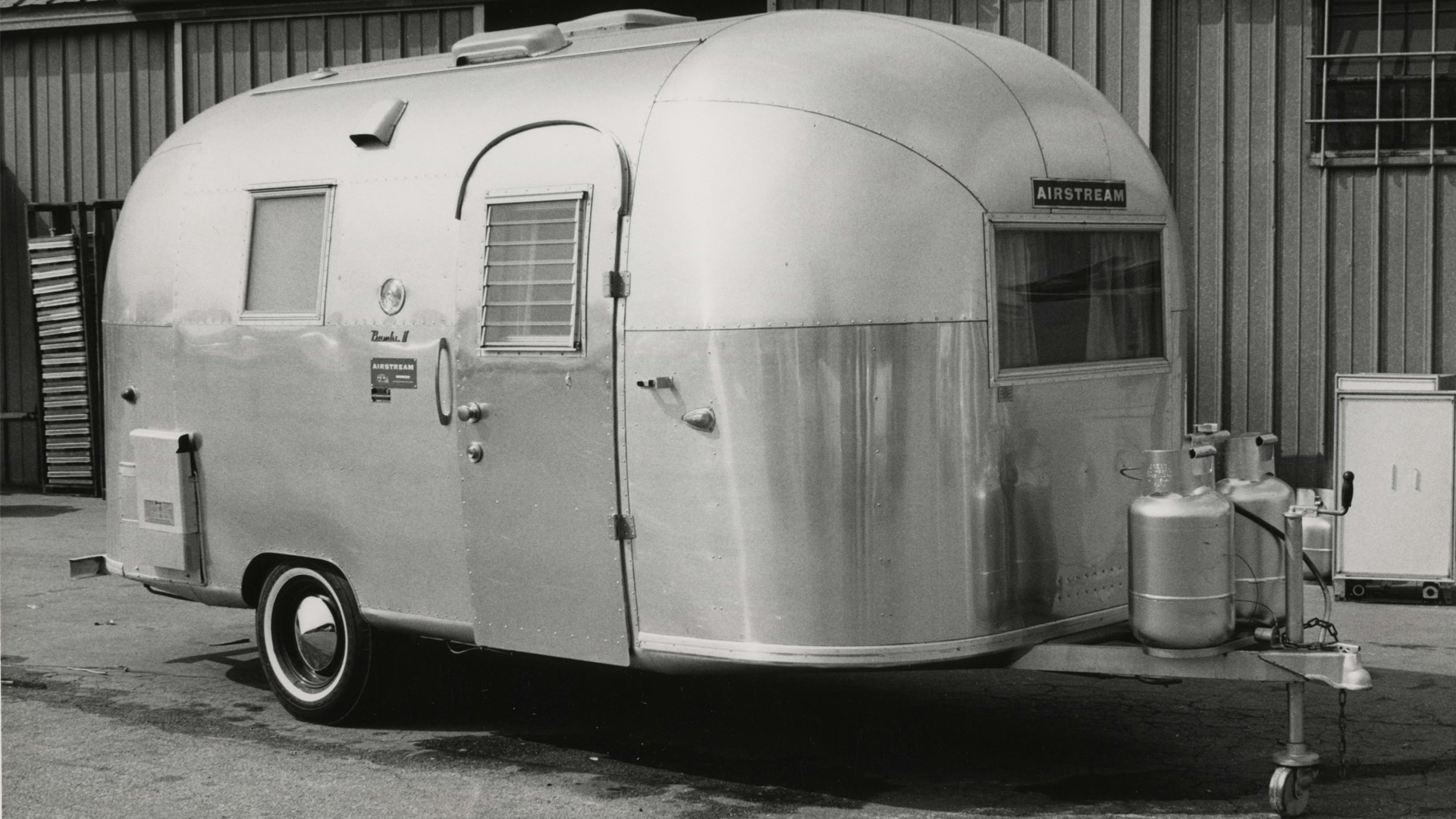
Shell Evolution
In 1964, advancements in metal-working allowed for a reduction in end cap segments from 7 to 5, which is still the configuration of today's Airstream.
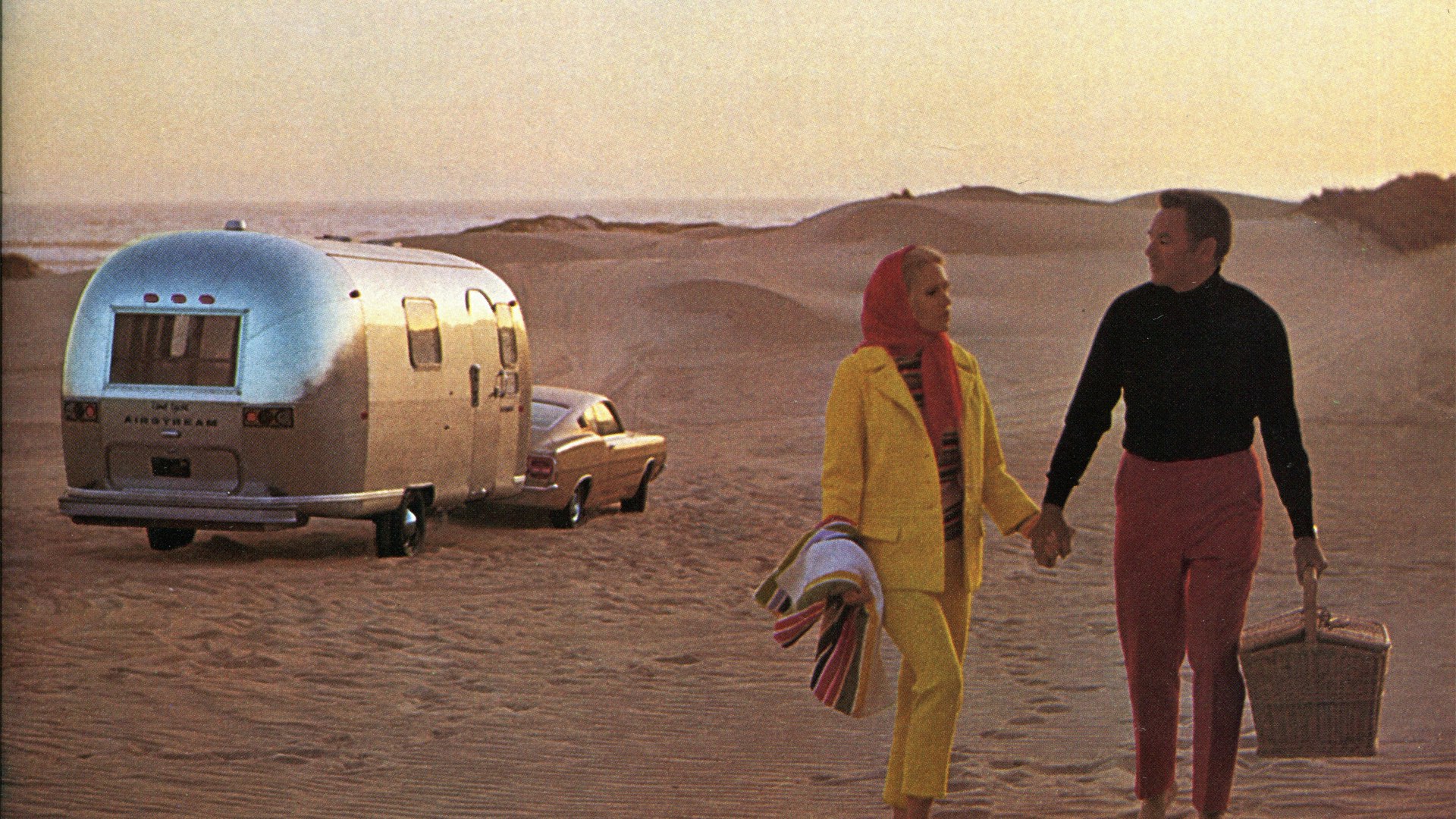
1969 Redesign
In 1969, the Airstream trailer had its first major redesign in over 30 years, with an internal facelift as well as exterior and structural changes. The end result was an Airstream with more rounded edges and a more streamlined shape, a more luxurious and comfortable interior, and a more distinct “bullet” shape. It even added a foot of length and four inches of width.
Diversification Committee
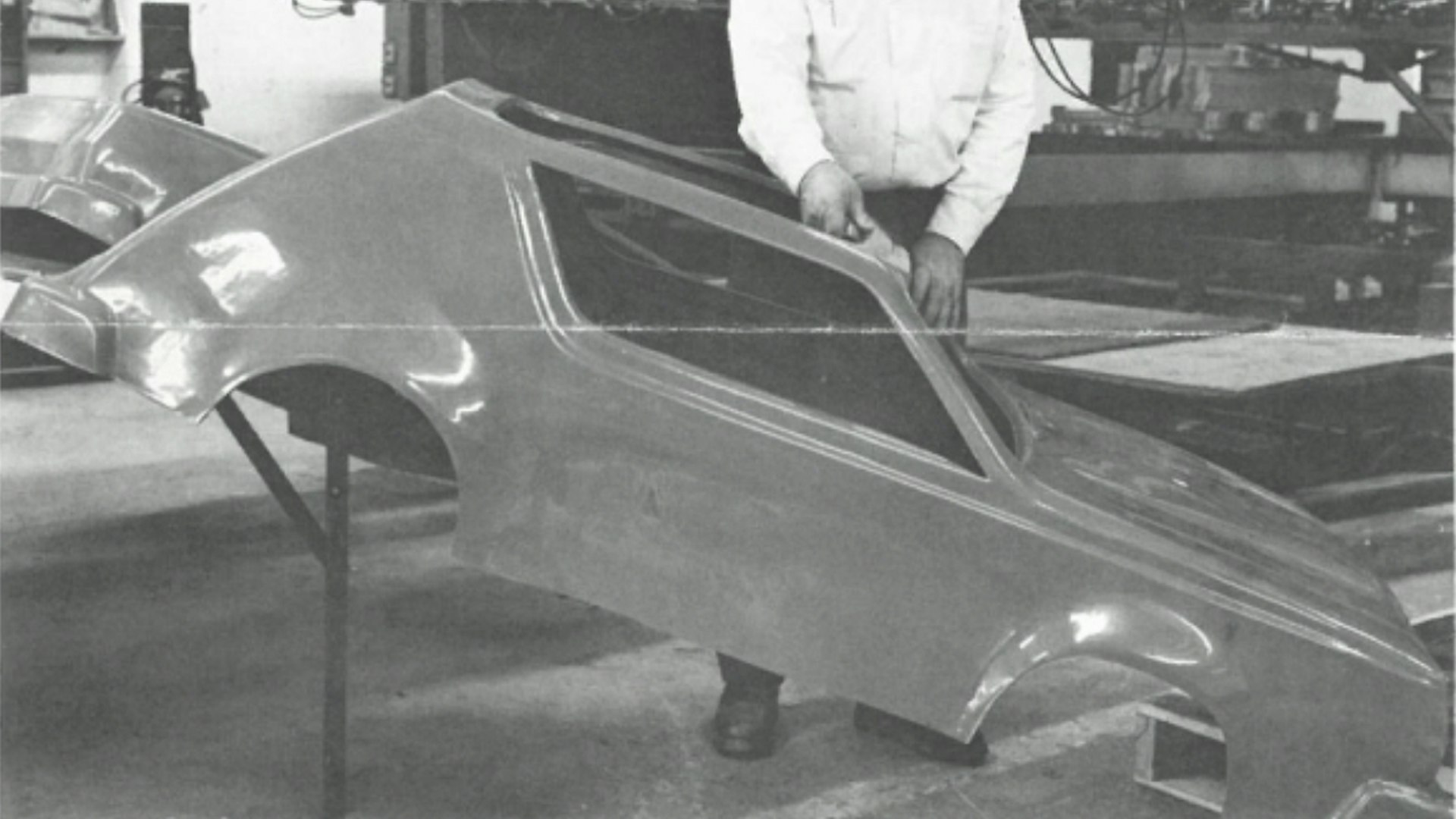
Miniature Cars
Airstream manufactured 7’ long, 2’ high vacuum-formed car bodies for American Motors in the shape of Gremlins, Vegas, Mustangs, and VWs. These miniature cars could travel up to 15 mph and were given to children by American Motors as part of a promotion when their parents purchased a new car.
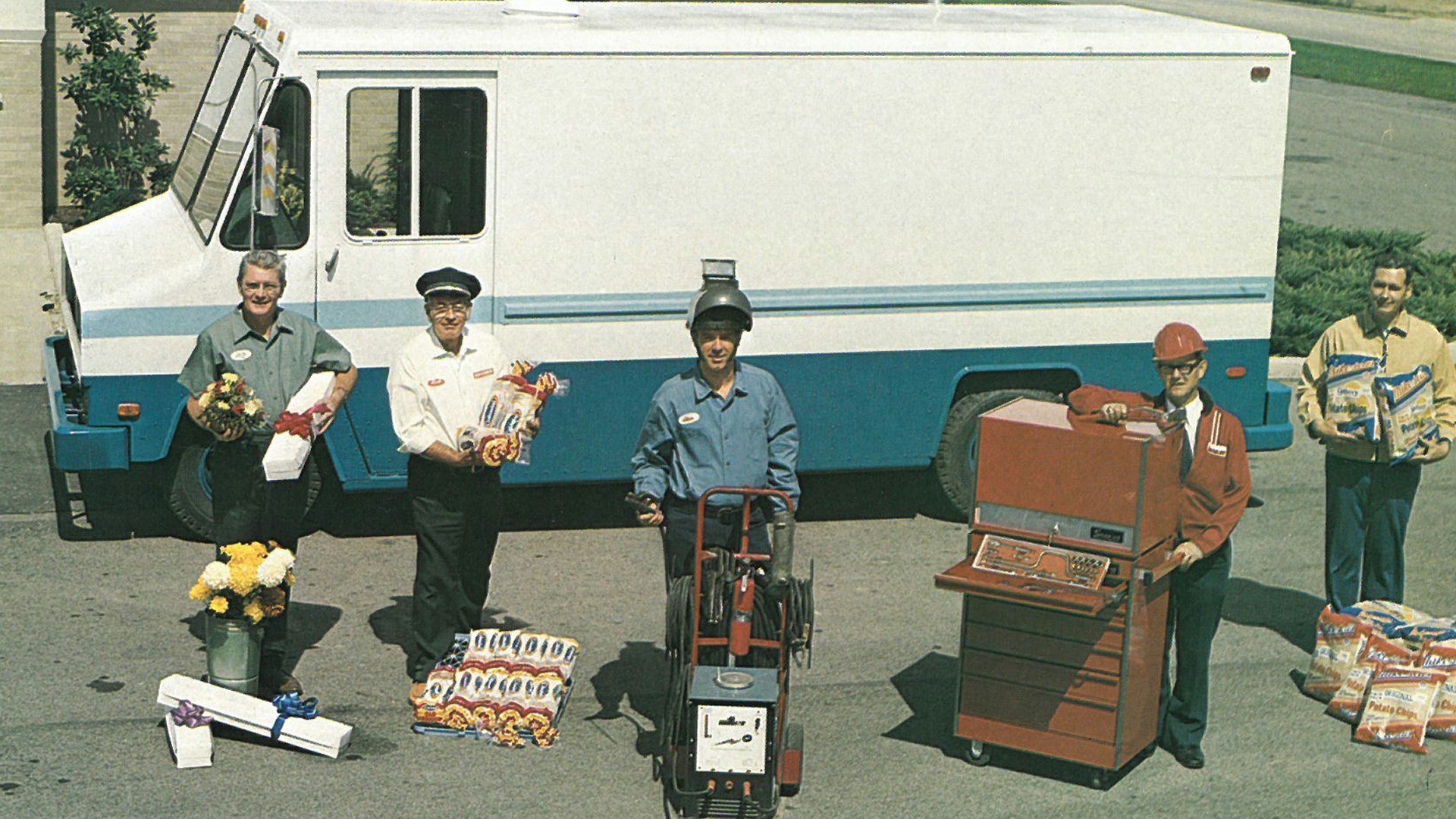
A/Van
Airstream designed an all-aluminum, heavy-duty utility van called the A/Van for bread companies, dry cleaners, florists, potato chip companies, and the mailing industry
Models

1971 Excella 500
With a planned annual limited run of 500, the 1971 Excella 500 was the ultimate in luxury. Paving the way for today's Classic, the new model featured a full slate of amenities, including a retractable power cord and water hose, standard vista view windows, a motorized TV antenna, a telephone jack, and a standard battery-powered hitch jack.
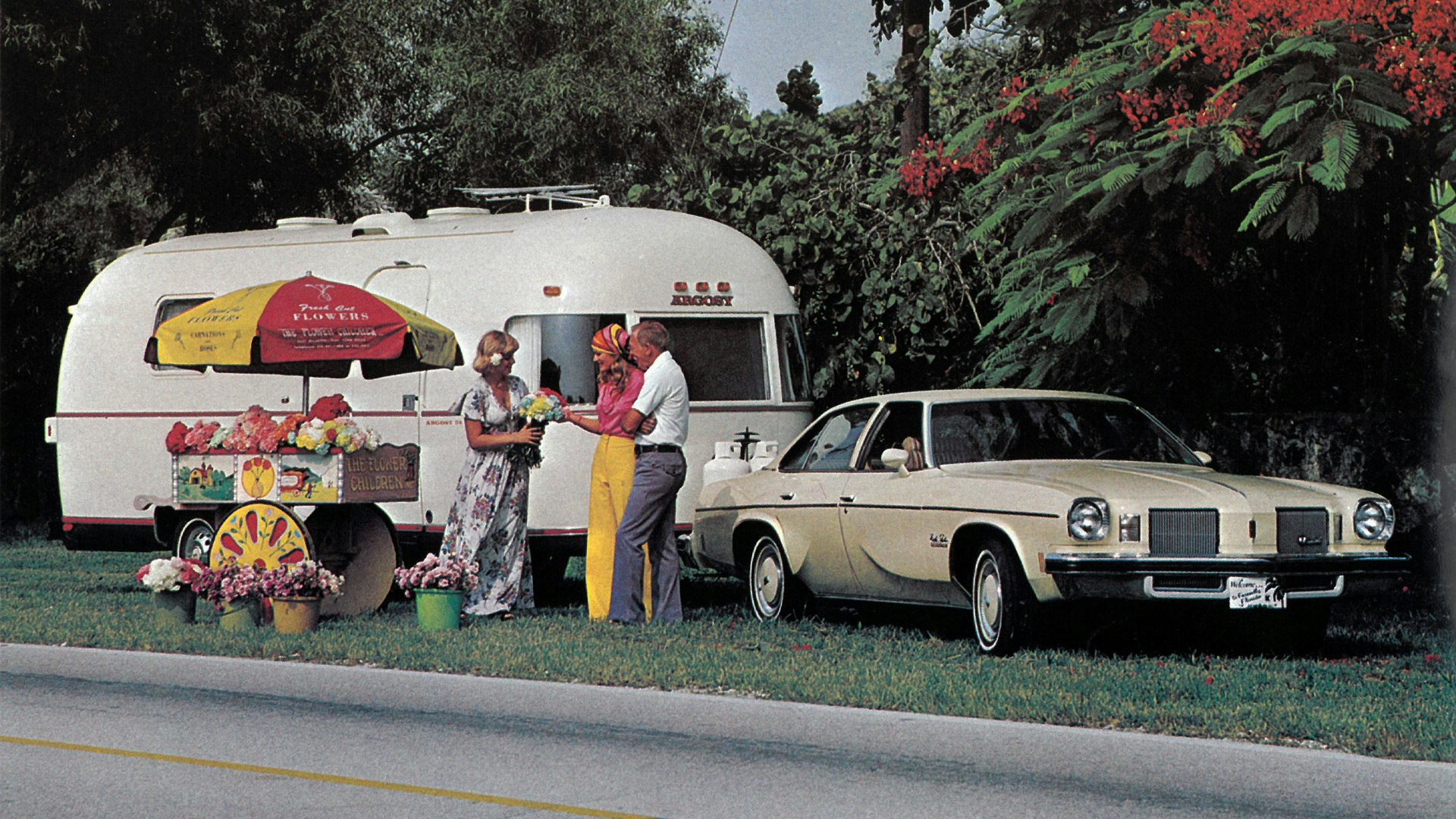
Argosy
Introduced in 1972 as a mid-priced alternative to the main Airstream line, Argosy travel trailers were the testing ground for new ideas – including motorized units. Their painted aluminum shells would one day become highly-sought after vintage models.

Argosy Motorhome
The first motorized Airstream model to hit the road, the Argosy Motorhome was manufactured from riveted aluminum. An Argosy Compact Bus was offered on the motorhome chassis for several years in the 1970s.
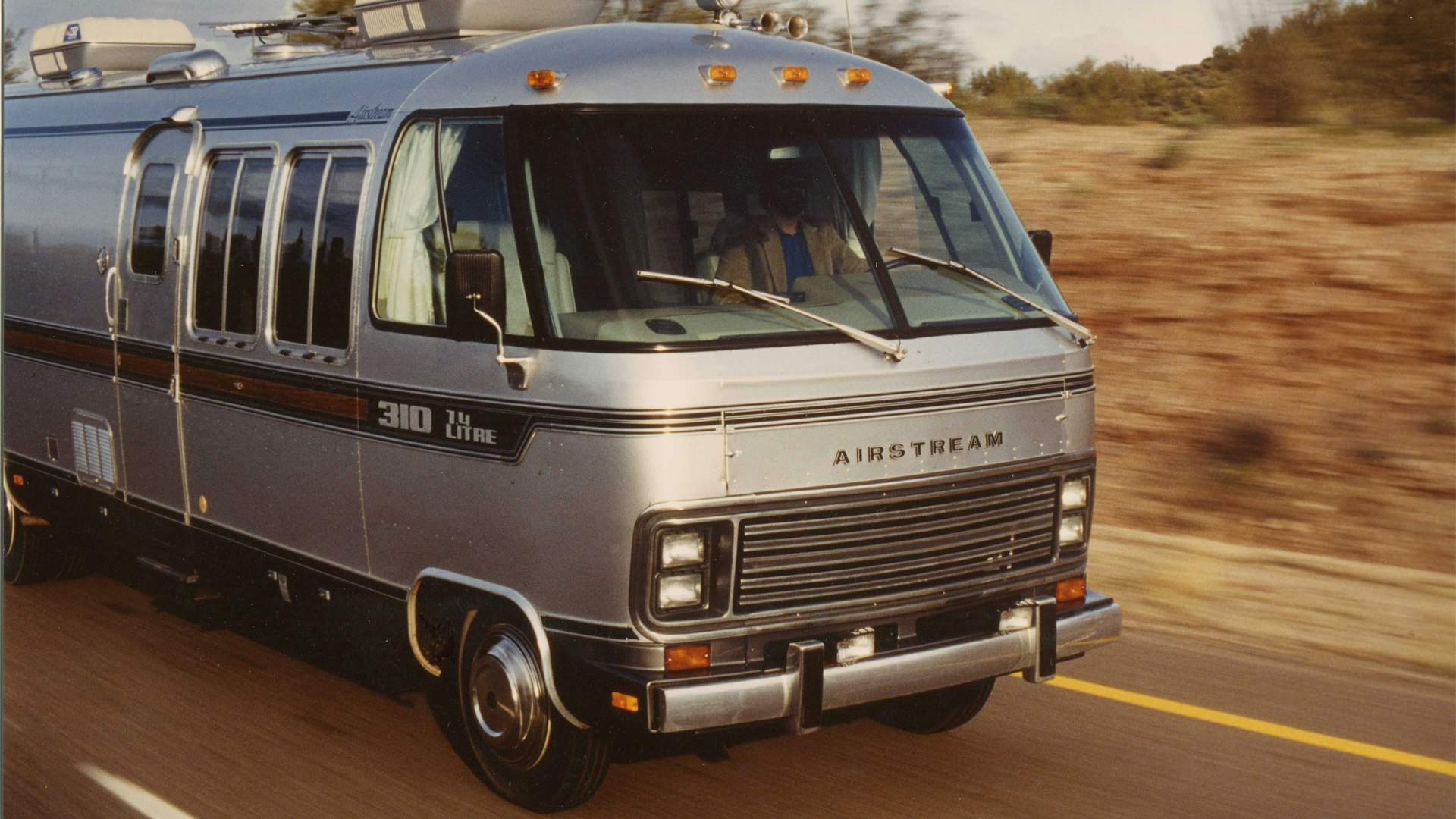
Airstream Motorhome
After the success of the Argosy Motorhome, in 1979 Airstream introduced a motorhome model of its own. Featuring the trademark riveted aluminum exterior, this Class A motorhome featured all the luxurious amenities that had come to define the Airstream brand.
Innovations
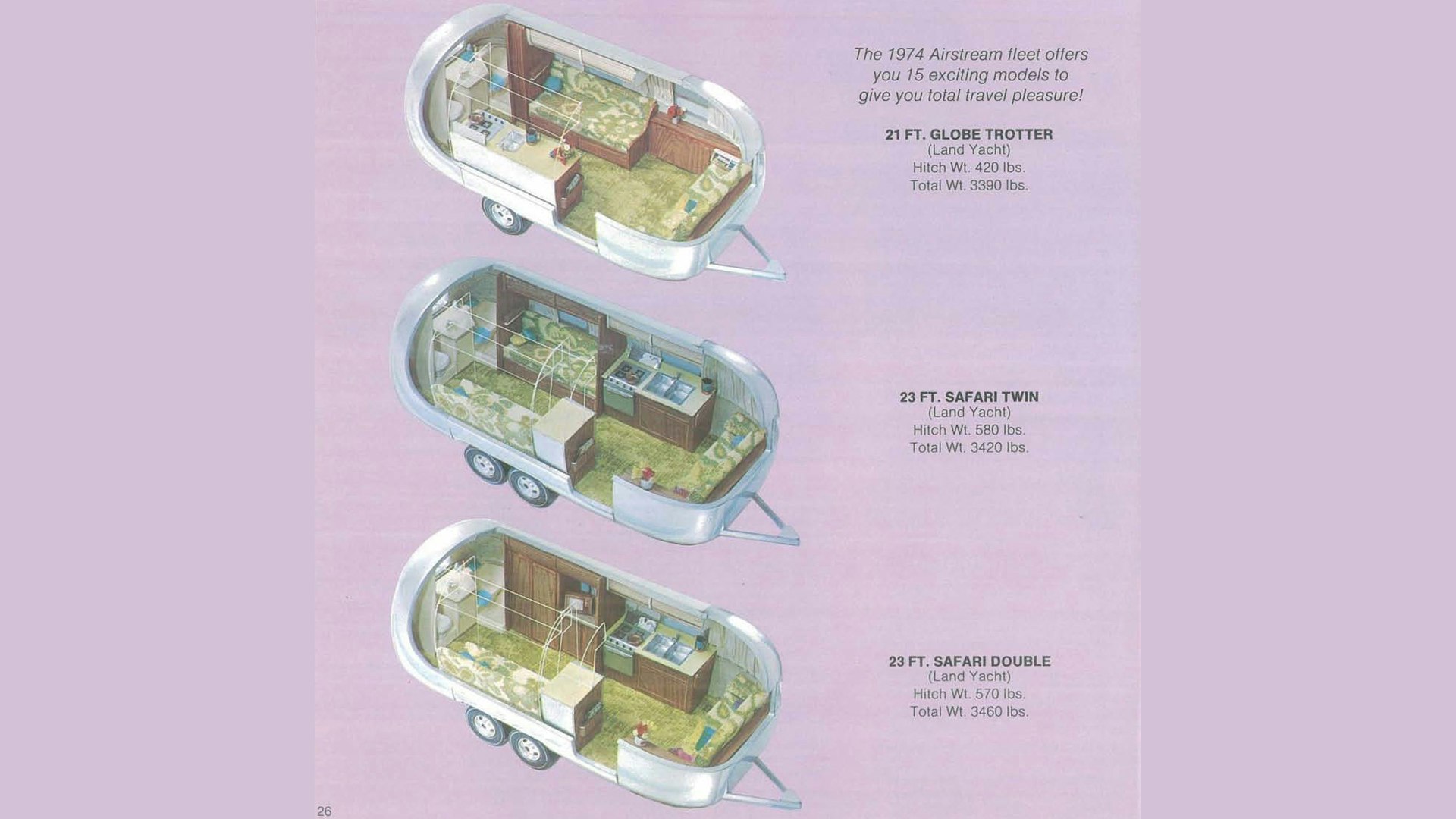
Gray Tanks
In 1974, gray water tanks became standard features in the majority of Airstream models.
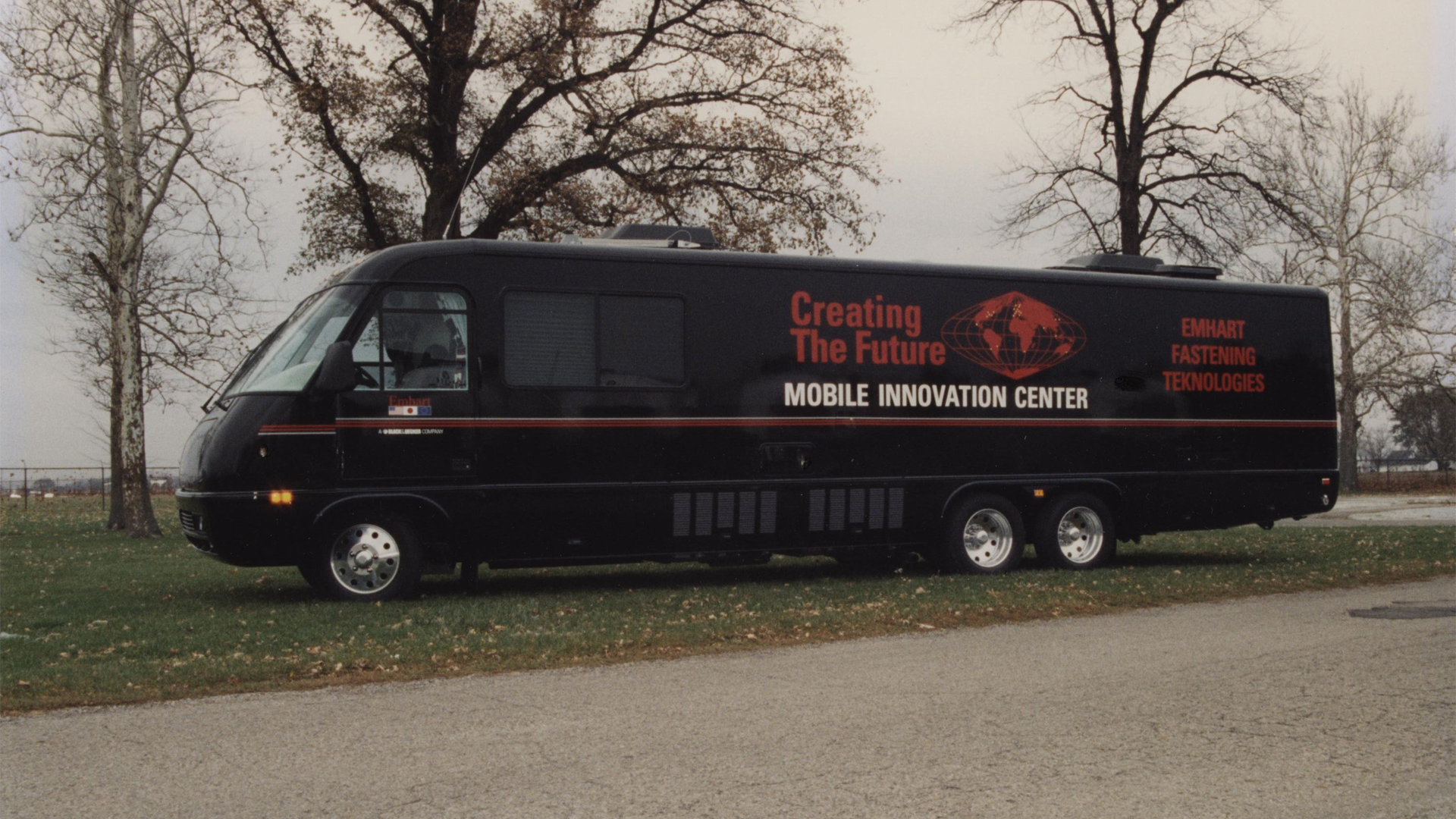
Commercial Department
Beginning in the early 1980s, Airstream's Commercial Department began building custom units for various organizations that were utilized in a variety of ways – as audio labs, computer labs, mobile doctor offices, and more.
Modified Class A Motorhomes

Funeral Coach
Responding to the oil crisis that gripped the era, Airstream began seeking diversification opportunities outside the travel market. One of many efforts to diversify came in the form of a Funeral Coach, with room for family members to ride comfortably up front and a side compartment to hold the casket on the way to the cemetery.
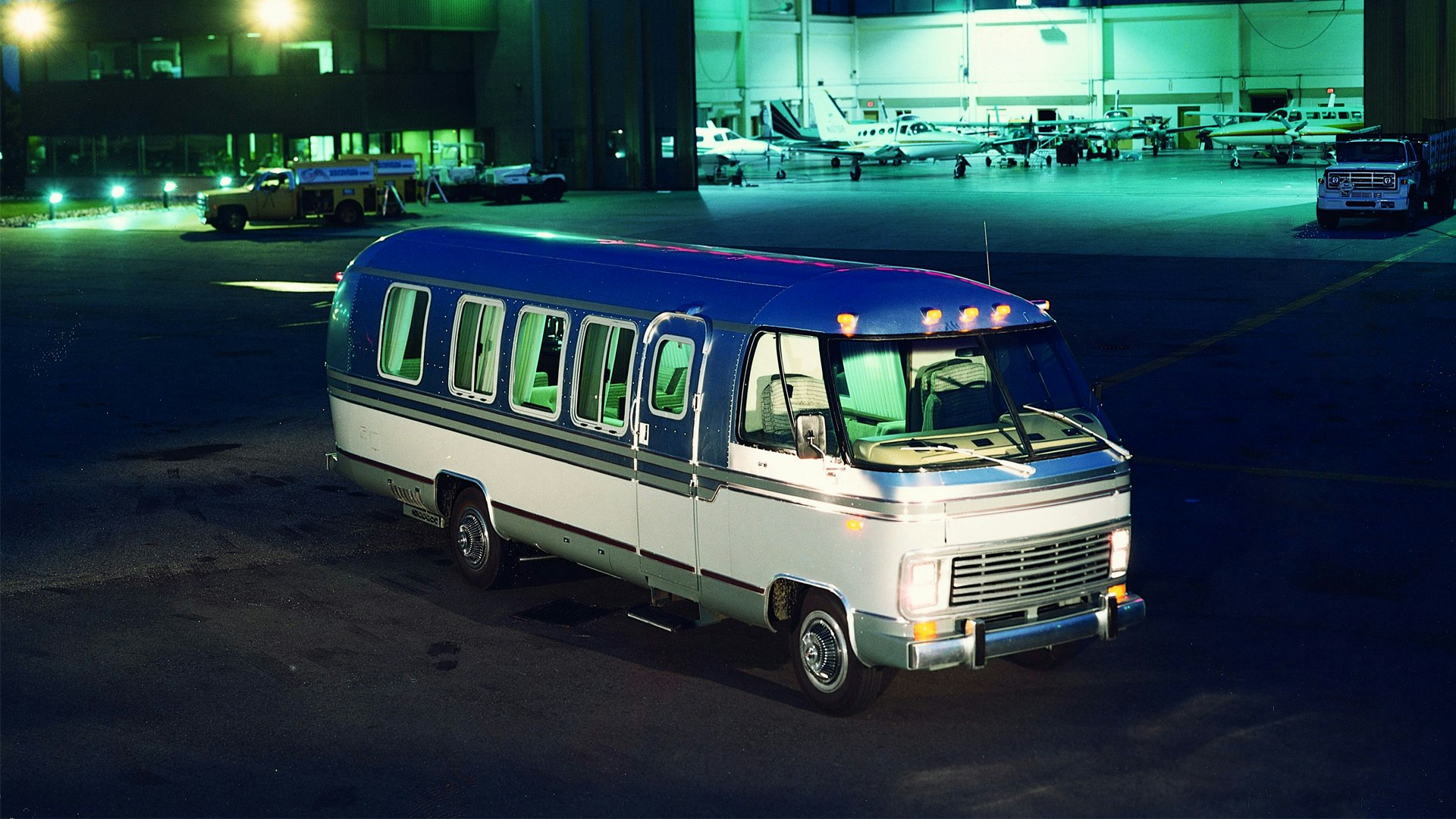
Air Coach
This modified Airstream Motorhome featured expansive seating throughout, allowing business professionals to work together while traveling on the road. The perfect corporate transportation solution, the Air Coach was another way for Airstream to diversify during the economic struggles of the time.
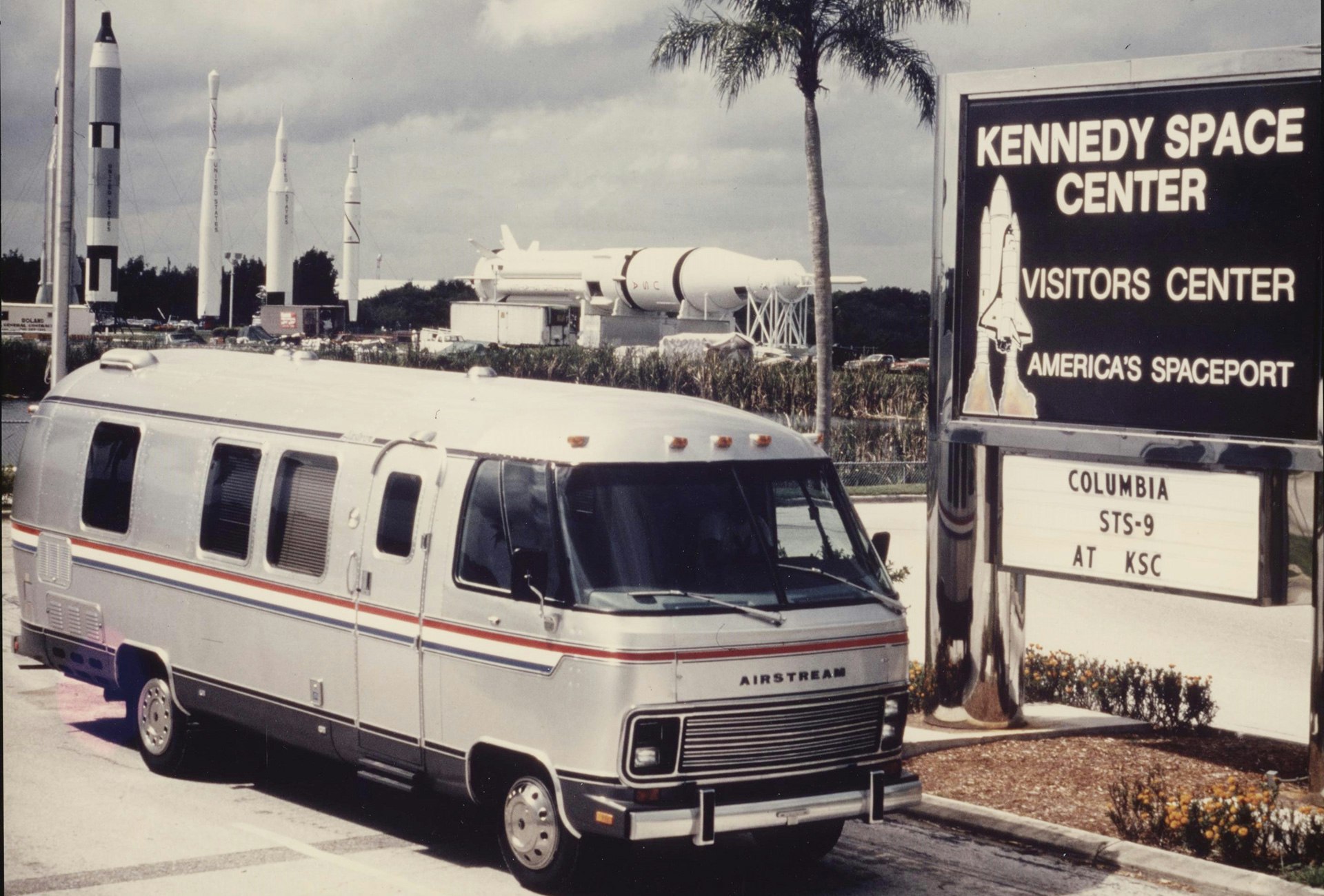
Astrovan
Built for NASA to transport Space Shuttle crews, this modified 1983 Airstream Excella Motorhome was affectionately nicknamed the "Astrovan" by the astronauts who rode to the launchpad in this iconic vehicle. The Astrovan featured bench seating, a rear hatch, and space for equipment. Today, the Astrovan is proudly displayed at the Kennedy Space Center in Cape Canaveral, Florida.
Travel Trailers

Argosy
In 1986, Airstream revived the Argosy line – this time with bonded aluminum rather than riveted pieces. Fiberglass was used on the fore and aft caps and the tops and sides were squared. In 1988, Airstream introduced the Argosy 5th Wheel – the first of such design to be offered by Airstream.
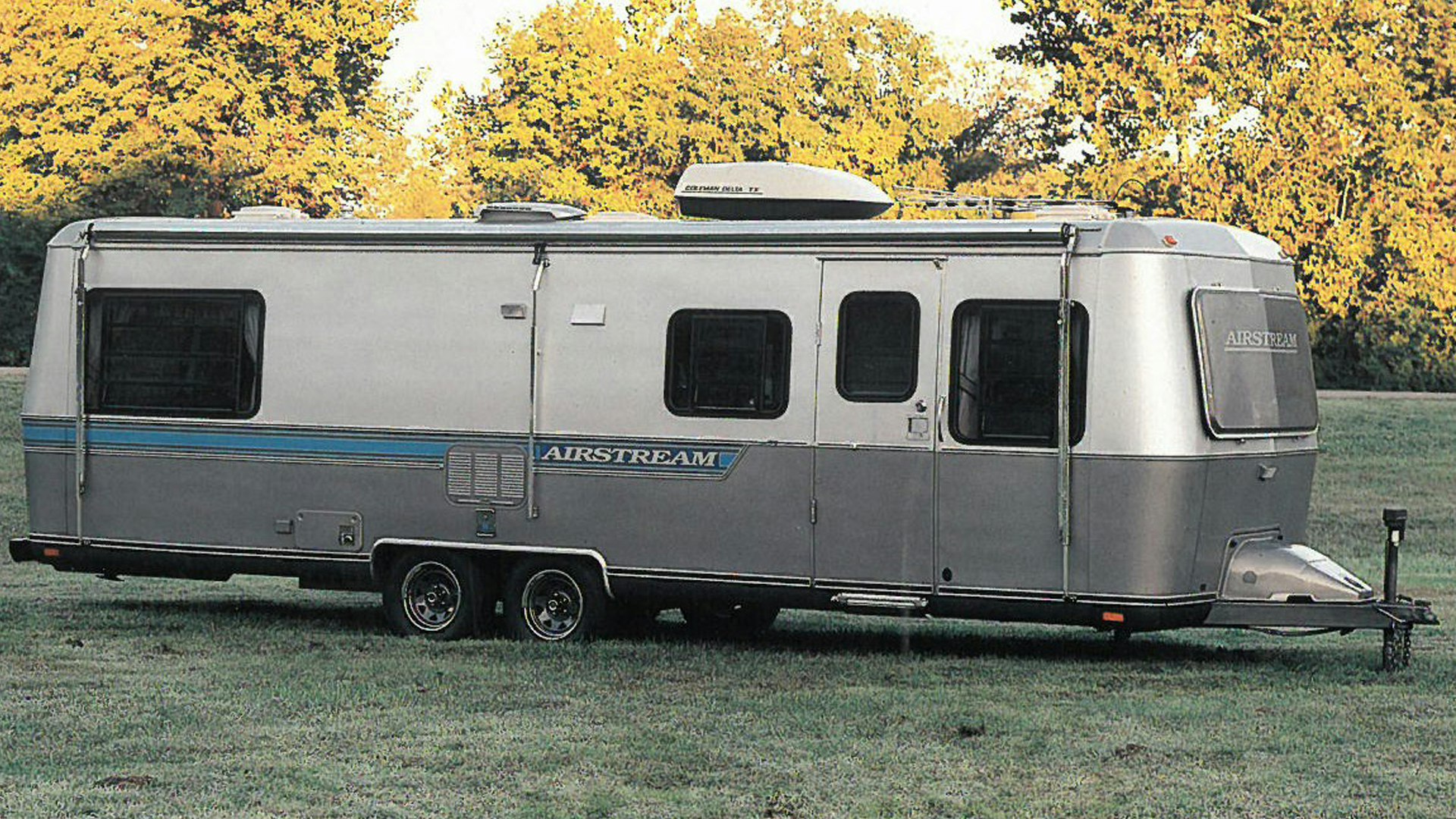
Land Yacht
1989 saw the introduction of the Land Yacht Travel Trailer, painted silver with a baked enamel finish. It earned the nickname “Square Stream” for its boxy shape. Also that year, Airstream introduced the Land Yacht Motorhome – constructed of laminated fiberglass, and featuring front and rear end caps that were so innovative that a design patent was granted.
Class B Motorhome
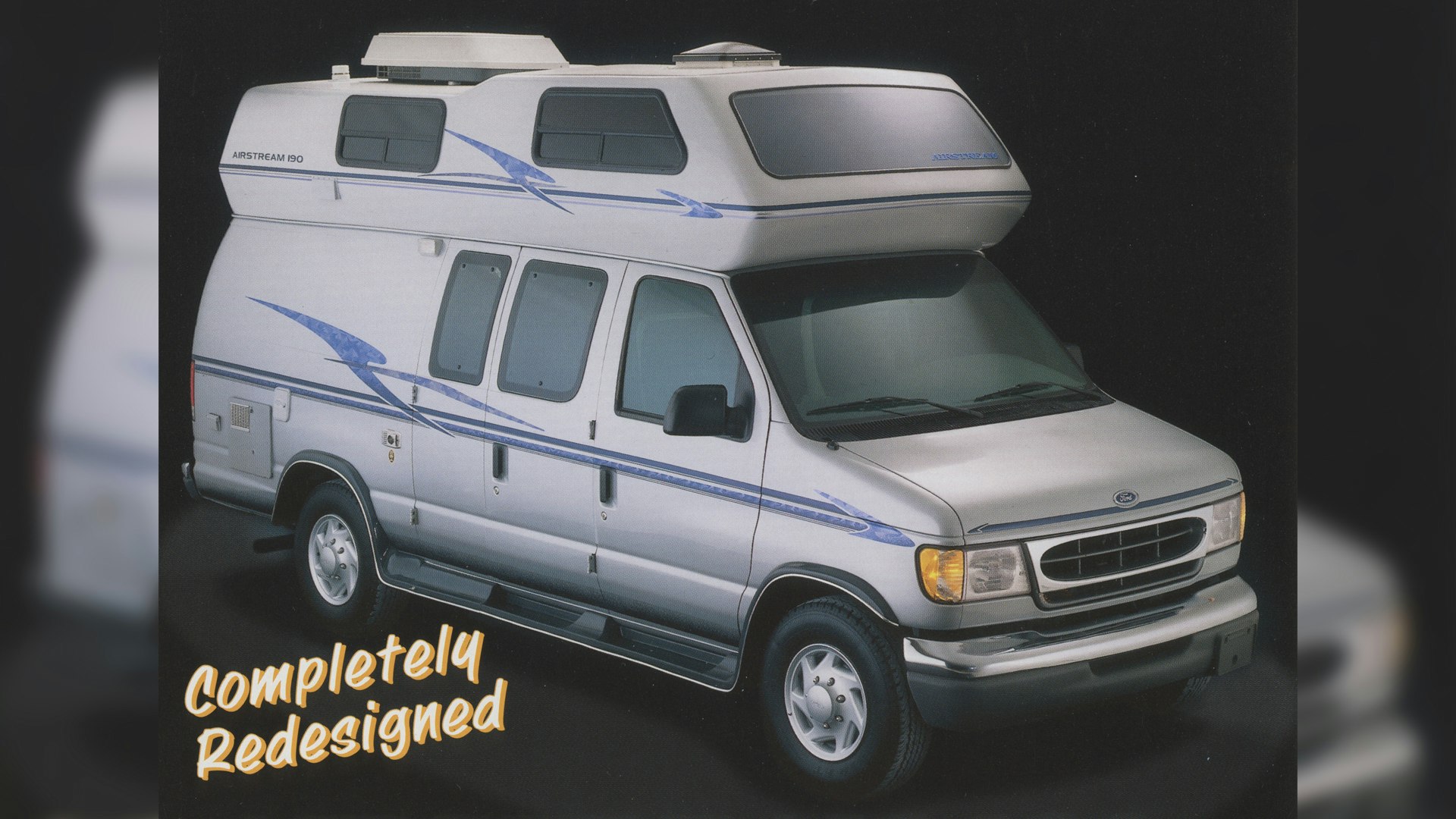
B-190
A precursor to today’s Interstate and Atlas Touring Coaches, the 1987 Airstream B-190 was our first foray into Class B RVs. It included all of the comforts and necessities of a motorhome, built into a nimble Ford chassis.
Shell Evolution
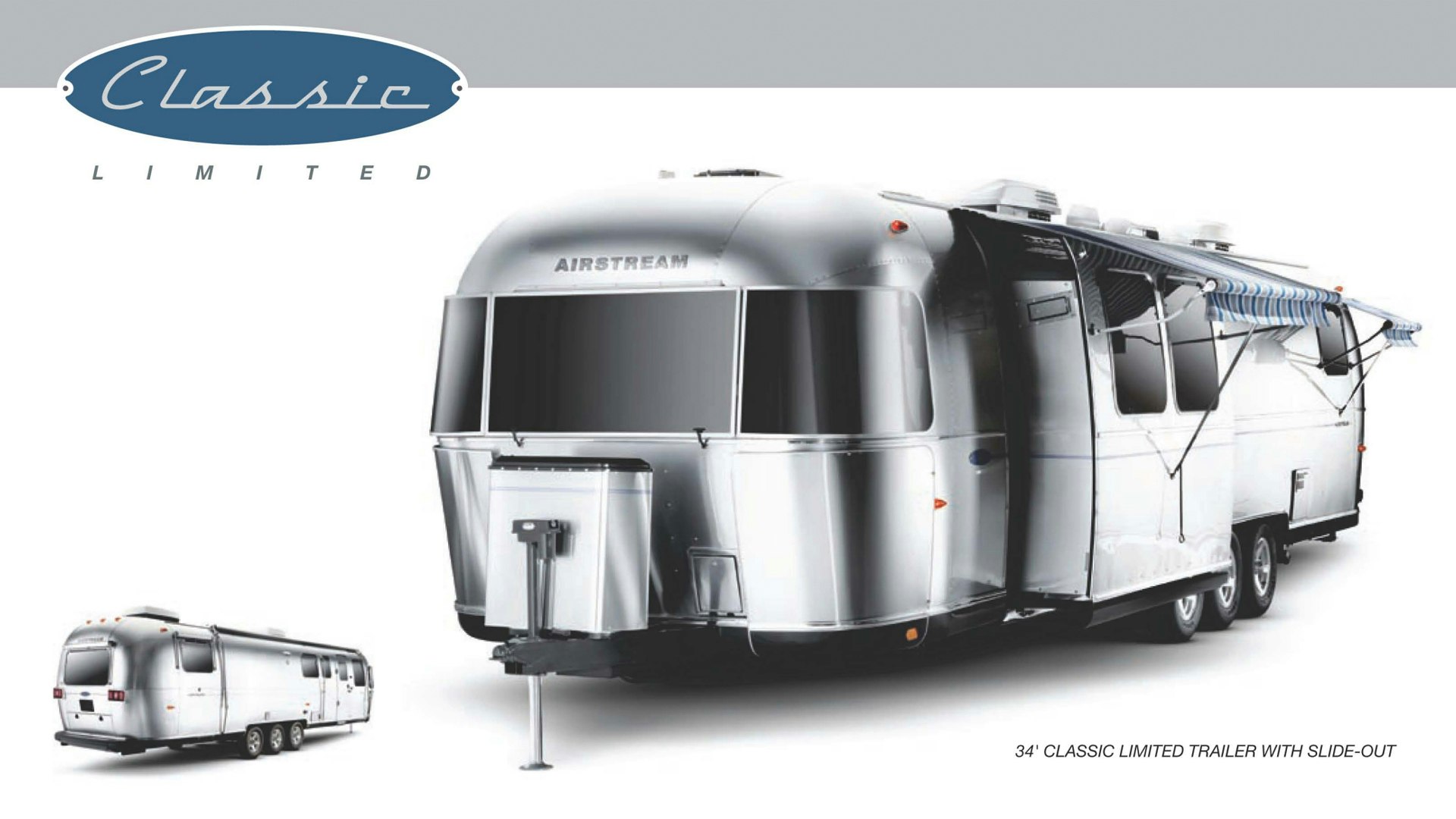
Slide-Out
A relative rarity in Airstream world, 1998 saw the first silver bullet Airstream model with a slide-out feature that expanded the interior space while camping.

Shell Evolution
In 1994, Airstream undertook its first major redesign in almost 30 years, with subtle changes to the profile and structure that resulted in a larger, more comfortable travel trailer while maintaining performance – and the iconic Airstream shape. And by 1996, Airstream added about five-and-a-half inches in width to the entire travel trailer line along with an overhaul of the interior design.
Models

SkyDeck
In late 2002, Airstream introduced the SkyDeck – a unique Class A motorhome featuring a rooftop deck, complete with cushioned seating and a barbecue area. The deck could be accessed via residential stairs from inside the motorhome for outdoor entertaining.
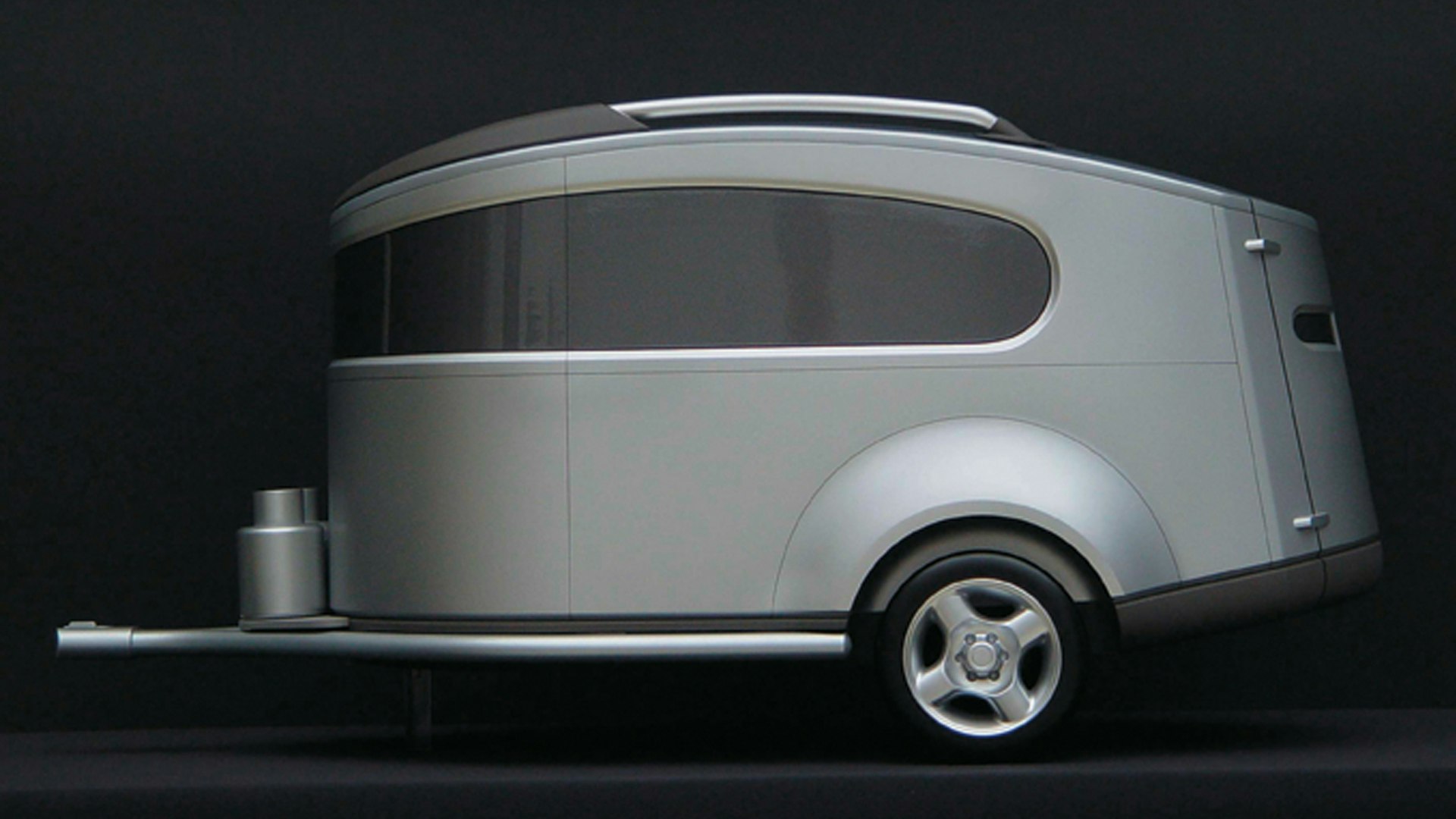
Basecamp
The original Basecamp, designed in partnership with Nissan Design America, was introduced in 2005. The 16-foot design had a distinctly rugged vibe for more active campers. Basecamp got a design refresh in 2017, with a wetbath, updated kitchen, rear-spanning bed, aggressive departure angle, and plenty of tech features.

PanAmerica
The PanAmerica was the first Airstream travel trailer to feature a rear hatch. It was a 34-foot toy hauler with living quarters in the front of the trailer and a built-in garage in the back for motorcycles, ATVs, and other adventure gear.

Westfalia
Upfitted by Airstream in 2005, the Dodge Sprinter Westfalia by Airstream was just over 18 feet in length, with a bright and inviting interior artfully laid out on different levels for a spacious look and feel. Featuring a unique roof bed, the motorized Westfalia featured the latest vehicle technology from Dodge® and Mercedes-Benz®. Its outstanding reliability and exemplary safety features would become the hallmark of Airstream touring coaches to come.

Europe and Beyond: Airstream's "Rest of World" Models
Beginning in 2005, Airstream began producing the first European spec trailer designed by Airstream's R and D department – a single axle model built on a BPW chassis. The next year saw production of the first Series 1 model (the 532), followed by the 684 (twin axle) and the 534 (single axle). The shell and much of the interior was built out in Jackson Center, except for the appliances which were installed in the UK (along with soft goods and other options). Initially these models were all ultra-narrow body (2.3m/7'6” wide).
Models
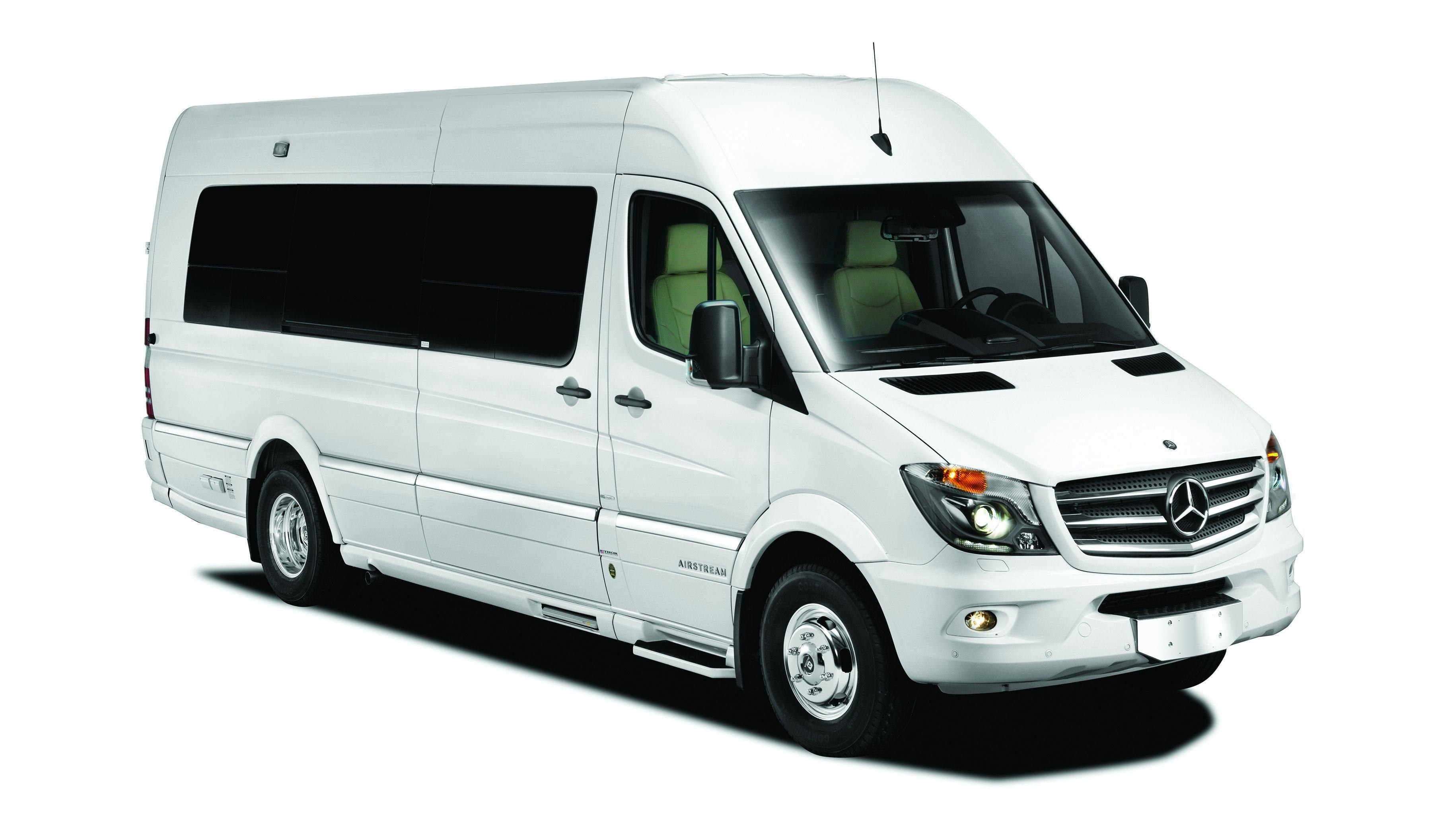
Autobahn
This 2014 Airstream touring coach was equally at home transporting business clients to a meeting or friends to a tailgate. With seating for eight, the Autobahn featured roomy seating, individual tables, and an onboard television.

Basecamp
After its initial design in the mid-2000s came to market, Airstream introduced a reimagined Basecamp in 2017. Featuring riveted aluminum in a rugged, adventure-ready design, Basecamp continues to be one of Airstream's most popular and best selling models today.

Atlas
Airstream's largest Class B motorhome, the Atlas, was launched in 2017. Affectionately referred to as a Class B+ because of its expansive interior and luxurious amenities, the Atlas featured a Murphy Suite that slid out to make more room for the bed. In 2019, a modified Atlas was built for Boeing to use as a Crew Transport Vehicle for their Starliner astronaut crew.

Interstate Slate
The opulent Interstate EXT Slate Edition was introduced in 2018 as a limited run of 75 individually numbered touring coaches. Crafted with sleek, dark tones and luxurious textures, the Slate edition was available in both the Grand Tour and Lounge floor plans. It offered the same 50+ best-in-class features found throughout the Interstate line, plus several unique features not found elsewhere in the fleet.

Caravel and Bambi Relaunch
In an effort to streamline Airstream's travel trailer fleet and offer customers a wider variety of single-axle options, Airstream relaunched the Bambi and Caravel lines in 2020. Featuring lightweight towing capabilities and identical floor plans in 16, 19, 20, and 23 feet, Bambi and Caravel were differentiated by their interior finishes and exterior features.
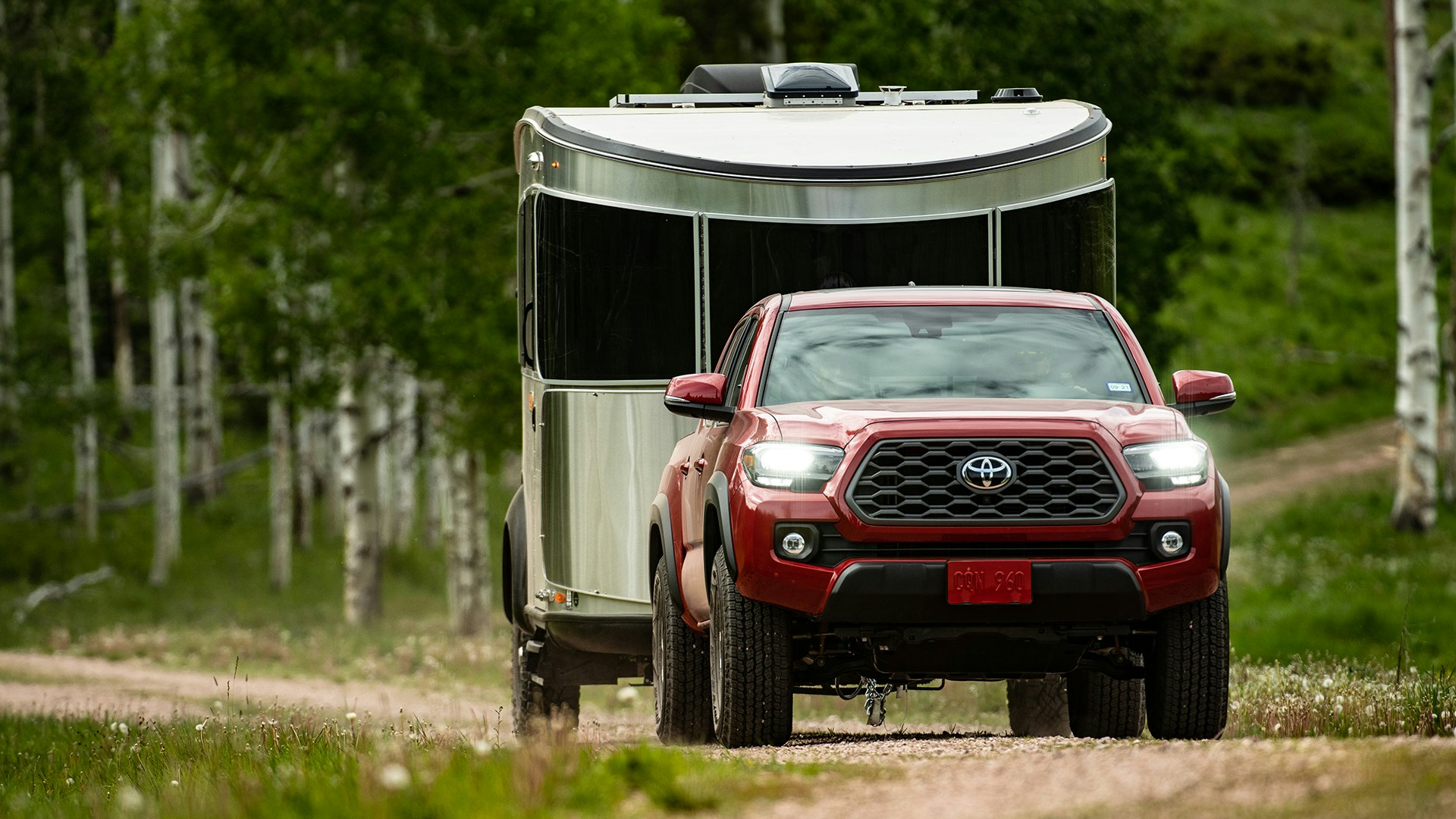
Basecamp 20X
Building on the success of Basecamp 16 and its adventure-ready optional X Package, in 2021 Airstream introduced Basecamp 20X – a 20-foot version of Basecamp that offered more space, more features, and more capability to go further and stay out there longer.

Interstate 24X
With more Airstreamers looking to take their adventure further afield, the Interstate 24X hit the market as Airstream's first true adventure van. Featuring the same power and performance found throughout our motorized line, the Interstate 24X was equipped with rugged tires, innovative gear storage options, and exterior features perfect for taking your adventure beyond the pavement.
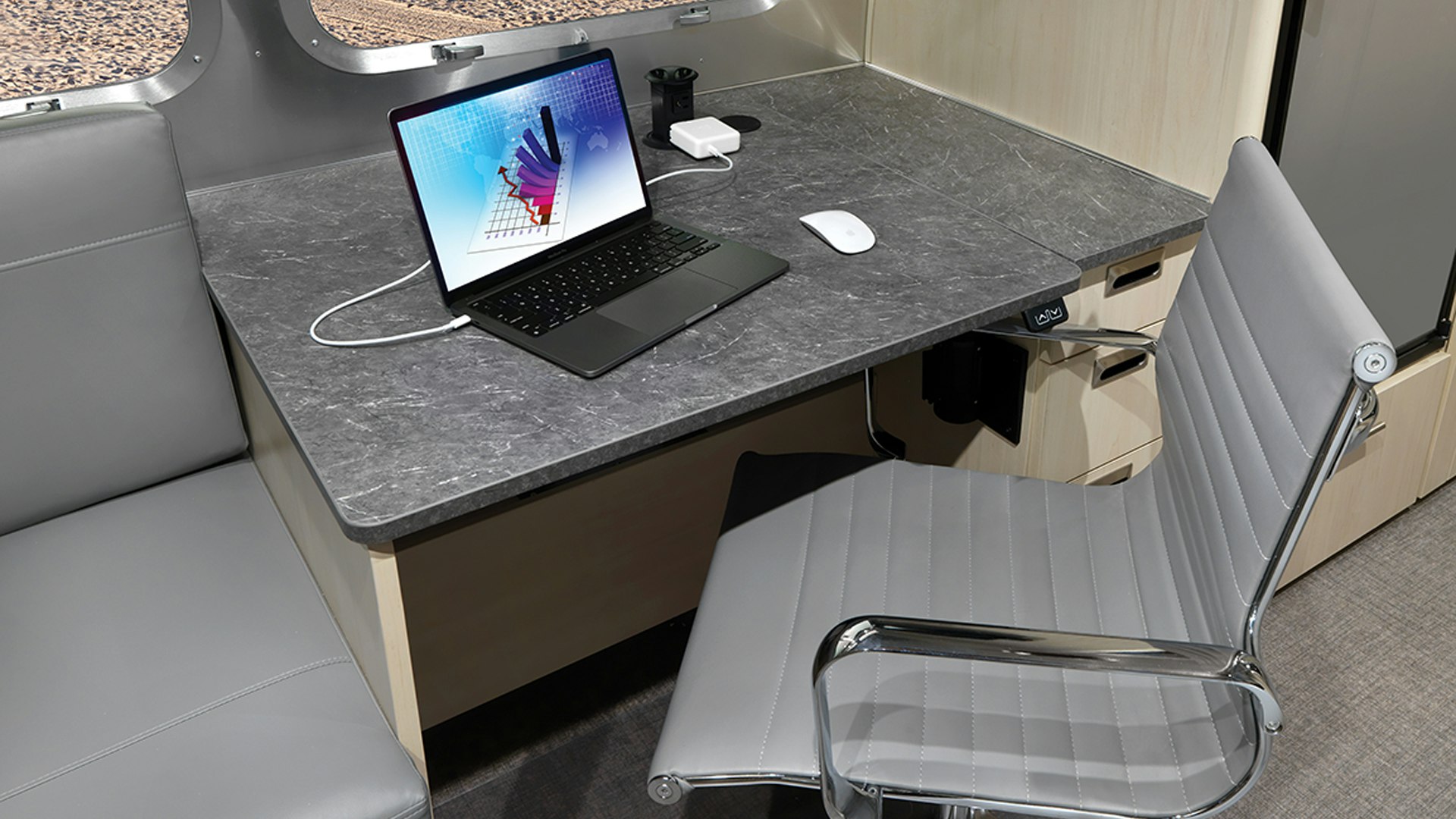
Flying Cloud Office
Responding to the sudden shift in travel mentality and the work from home trend caused by the COVID-19 pandemic, Airstream redesigned the popular 30-foot Flying Cloud Bunk Model to replace the bunk beds with a versatile work station. The Flying Cloud 30FB Office was an instant hit with owners who wanted to hit the road safely on family adventures while staying connected to work.
Tech
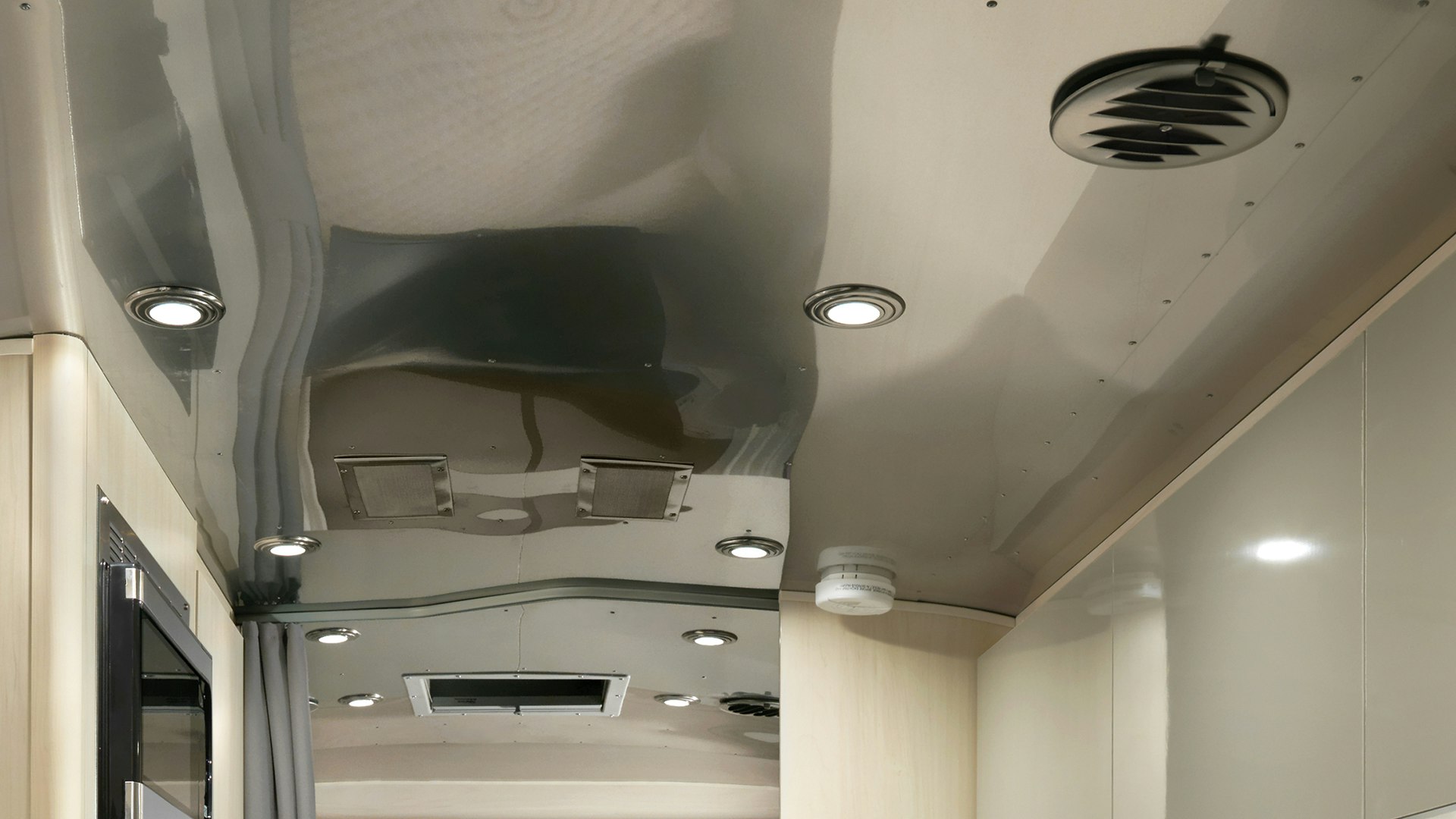
Quietstream™
Originally introduced in the 2014 Land Yacht, Quietstream ducted air conditioning was introduced in all 25-foot and larger models in 2015. In 2016, the technology made its way into all 23-foot and smaller models (except for Sport).

Smart Control Technology
Through a partnership with AT&T, Airstream launched a groundbreaking new "Smart" RV concept in the 2019 Classic model. Featuring 4G LTE connectivity, the technology allowed owners to remotely monitor and control interior and exterior features through a smartphone app. An aftermarket solution with a high-gain roof antennae and mobile router allowed owners to add connectivity solutions and a powerful Wi-Fi hotspot to any Airstream travel trailer.

Pre-Wired for Airstream Connected
While Airstream's top-of-the-line models incorporated Smart Control Technology into their designs, Airstream Connected allowed any Airstream to be upfitted with connectivity solutions. Since 2019, all Airstream travel trailers and touring coaches come prewired for easy installation of the Airstream Connected kit.

Airstream Power Plus
With technology advancing quickly through the RV market and more owners looking to stay out longer, Airstream introduced its Power Plus option in 2020. A flexible solution that brings together solar panels, battery monitors, and the option of upgraded LiFePO4 batteries, Airstream Power Plus is a versatile way to add powerful travel solutions to your Airstream.
Shell & Chassis Evolution

Composite Flooring
For decades, wood flooring was the RV standard. But in 2020, Airstream migrated away from the traditional 5/8" plywood used for flooring and began utilizing new composite flooring in its traditional travel trailers. Seamless, water resistant, lighter, and stiffer than traditional wood, the composite material also offered greater screw retention. The recyclable material is more environmentally-friendly and improves quality for the life of the travel trailer.

Shell Change
With the introduction of the 2022 Pottery Barn Special Edition and the 2022 Classic, Airstream subtly improved the shape of its iconic riveted aluminum shell. The redesign utilized the combination of state-of-the-art stamping tools and streamlined manufacturing processes, resulting in increased quality across the entire production line.

Aerodynamics
Confirming what generations of engineers have understood, Airstream put its aerodynamics to the test in an extensive 2021 aerodynamics study. With aerodynamics baked into Airstream's curved, streamlined designs, the study allowed our engineering team to explore how to make an already aerodynamic design even more so in the future.

